




I sense that the moment has come to commit all of the Church’s energies to a new evangelisation and to the mission ad gentes [the people]. No believer in Christ, no institution of the Church can avoid this supreme duty: to proclaim Christ to all peoples... If we look at today’s world we are struck by many factors that can lead to pessimism. But this feeling is unjustified: we have faith in God our Father and Lord and in his mercy... God is preparing a great springtime for Christianity, and we can already see its first signs.
- John Paul II


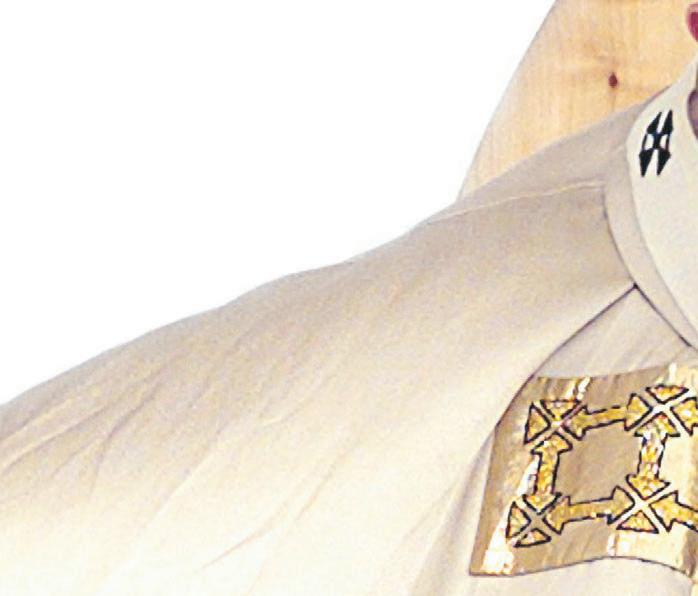
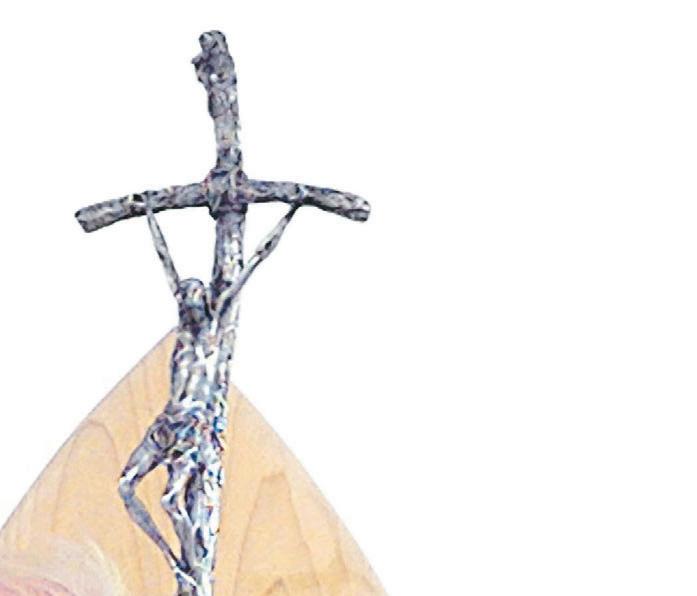
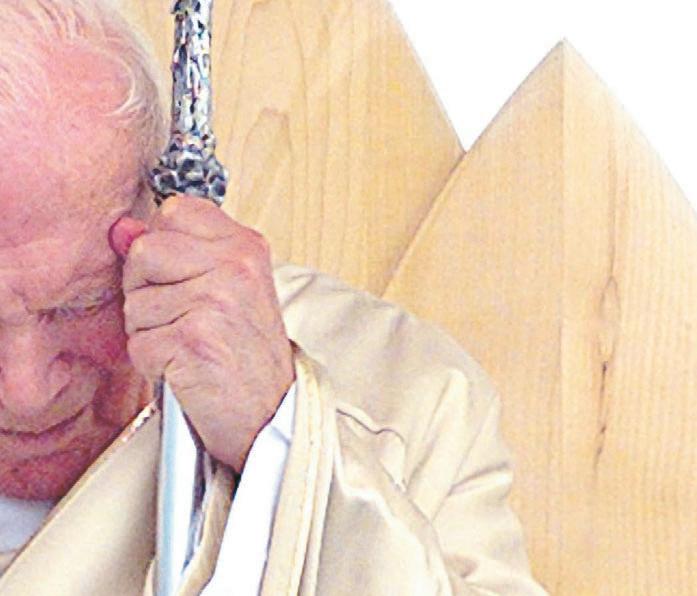
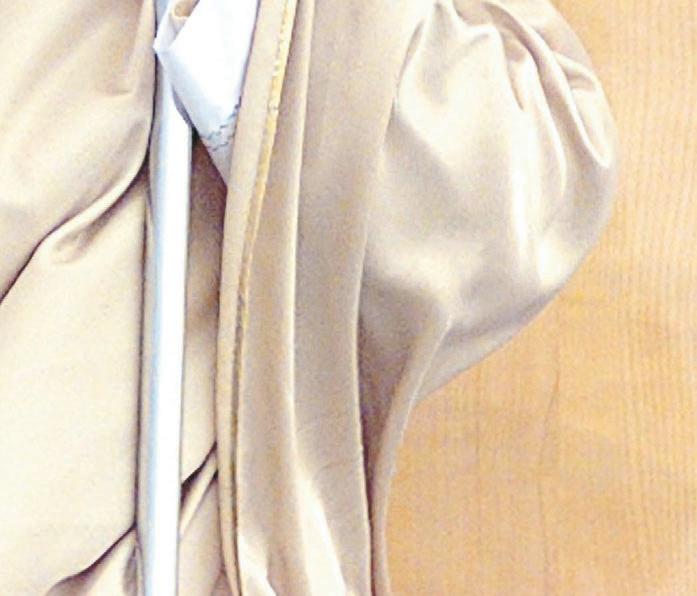
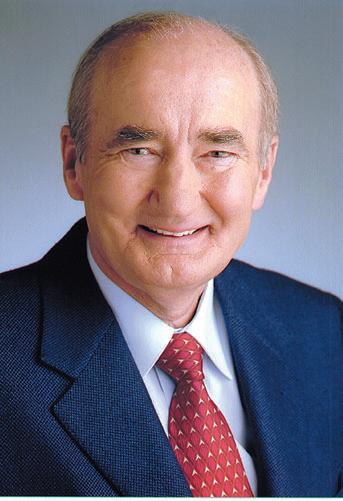



There
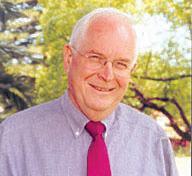
Catholic Education Director
Ron Dullard
As we join with the global Catholic community to grieve the passing of our Holy Father, Pope John Paul II, the Catholic education community in WA also celebrates the life of this extraordinary man with whom we had a very special connection.
In the boardroom of the Catholic Education Office hangs a painting that commemorates the official blessing and opening of the Office buildings that was conducted by the Pope himself during his 1986 visit to Australia.
Speaking during the ceremony, he shared with us some of that unwavering faith that gained him
A modern apostle: most travelled Pope in history
8-9
The Pope a killer??? Andrew Bolt responds to some of the nastier things that have been said about JPII and AIDS
12
Surge of interest in natural family planning in Perth
13
Catholic TV in Perth - your guide to what’s on this coming month
14
So you think you know what the Church teaches about God’s plan for life and love?
Look again
15
respect the world over. Drawing a parallel between Catholic educators and the disciples of Jesus, he reminded us of our vocation to evangelise and model the Gospel values in all that we do.
“Jesus’ last words to his disciples were a command to proclaim the Gospel to the people of every time and place,” he said.
“These words are relevant for us today. They retain the same force and challenge and you have heard this challenge in Western Australia. You have heard it and are eager to meet it.”
Almost 20 years later, the relevance remains as we continue to face, and strive to meet this and other challenges. Through initiatives such as our Living the Vision statement and the strengthening of partnerships between the school, church and home we will continue to focus on the academic, spiritual, social, psychological, physical and emotional development of every Catholic school student.
Pope John Paul II will long be remembered as a man of faith, compassion, wisdom and courage. He is a model to us all of what it is to be “filled with the utter fullness of God” (Ephesians 4:19b).
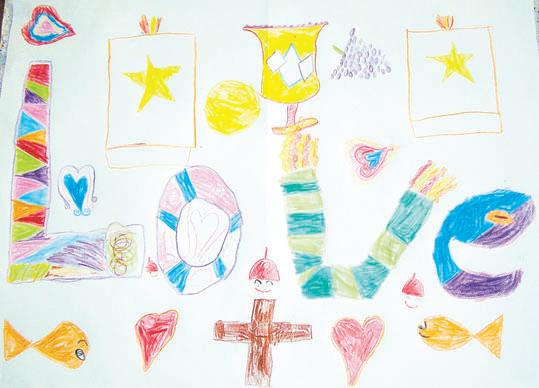

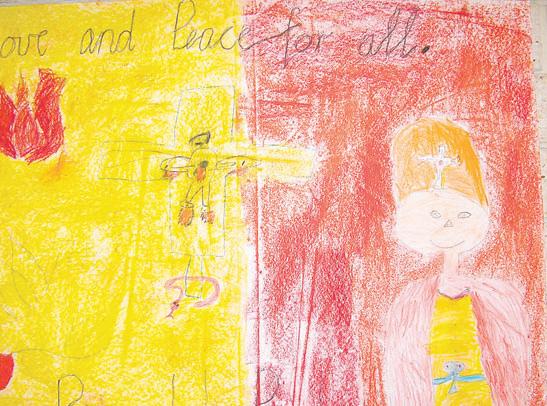
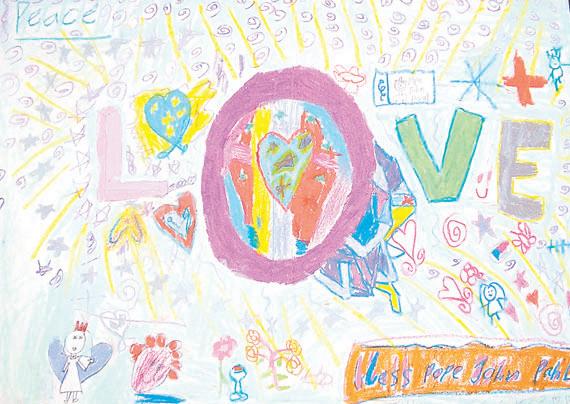
On 30 November 1986 His Holiness Pope John Paul II presided over the official blessing and opening of the refurbished Catholic Education Centre buildings at 50 Ruislip St in Leederville.
Addressing those in attendance during the ceremony, our Pontiff had these sentiments to share:
I am pleased to be here for this opening of the Catholic Education Centre for the Church in Western Australia. This is an event of special significance.
The Centre itself, which houses the Catholic Education Office and the Catholic Institute, builds upon the worthy achievements of Catholic educators in the past, and looks constructively to the future.
The Centre is a sign of the Church’s commitment to educate people of all ages – adults as well as youth – and it is a concrete means for accomplishing that goal. I willingly commend you for this important initiative and for the Gospel zeal which it symbolises. Education is a primary human right, and thus it is a fundamental concern of both civil society and the Church.
Jesus’ last words to his disciples were a command to proclaim the Gospel to the people of every time and place: “Go, therefore, make disciples of all the nations: baptise them in the name of the Father and of the Son and of the Holy Spirit, and teach them to observe all the commands I gave you”. These words are relevant for us today. They retain their same force and challenge. And you have heard this challenge here in Western Australia. You have heard it and are eager to meet it.
...Catholic education seeks to be faithful to its religious dimension. Catholic education is called upon to develop the gift of faith. It aims at bringing into the fullness of the

Christian life those who have been baptised. It seeks to foster a desire to worship God in spirit and in truth, and a longing to share more completely in the life of the Most Holy Trinity.
You educate children. You help adults grow in the faith. You aim at promoting full maturity in Christ by caring for spiritual needs and by fostering the development of physical, moral and intellectual talents.
I assure you of my prayers for the success of this Centre and for the success of all your efforts in the vital work of Catholic education. May you and those you serve grow always in the truth and love of God.
For as Saint John says: “In our life of truth and love we shall have grace, mercy and peace from God the Father and from Jesus
Christ”. May God bless you all.
For the staff of the Catholic Education Office, the death of Pope John Paul II brought with it a time to grieve for, reflect on and celebrate the life of our Church’s leader.
A Mass to celebrate the life of Pope John Paul II was offered on the Monday following his death.
On each of the nine days of mourning, a special prayer ceremony was held for staff in the Chapel of St Michael the Archangel at which a decade of the Rosary was prayed in a different language each day.
Recognising the Holy Father’s devotion to Mary the Mother of God and his unwavering commitment to spread the good news to all people of all nationalities, the prayer service was a very moving experience for those who participated.
The following responses are from Year 12 students at Mater Dei College, Edgewater, to quotes taken from the book Pope John Paul II Speaks to Youth by Archbishop Barry Hickey
From the Pope’s message to the young people of Israel and Palestine in 1999:
“In a few years, your generation will be responsible for shaping the destiny of your peoples, your nations, and of the world. It is a moral imperative that you help to construct a new society, to build a new civilisation, based ever more solidly on mutual respect, brotherhood and the spirit of cooperation.”
This paragraph spoke to me because I feel that everyone, whilst maintaining their individuality, needs to function and work together to build a strong future. - Glen
From the 15th World Youth Day at Tor Vergata in the year 2000:
“Today you have come together to declare that in the new century you will not let yourselves be made into the tools of violence and destruction; you will defend peace, paying the price in your person if need be.”
Let us hope that the new generation follows Pope John Paul’s encouragement to enter this new century with determination. - Jessica
In 1999 the Pope gave this message to young people:
“At the threshold of the new millennium, you must come to see more clearly that the future of peace, and therefore the future of all humanity, depends upon the fundamental choices which your generation will make.”
The message for people our age is that the future is in our hands. - Ryan
Dear God
Pope John Paul II has been a special Pope to us. He has been able to bring peace and harmony for a long time.
He has known it was time for him to leave us and the Catholic Church.
Please give him a good, long rest and take care of us.
Please make sure we get a good, loving and caring Pope. Amen
- Sharon, Year 4, St Jude’s Catholic School, Langford
To Pope John Paul, I hope you have fun with Jesus. Love Chloe.
- Holy Name School, Carlisle
Thank you God for taking Pope John Paul to heaven. I love you John Paul.
- Anon. Holy Name School, Carlisle
Jesus, please say a prayer to Pope John Paul because we all love him.
- Anon. Holy Name School, Carlisle
Dear Jesus, please take Pope John Paul up to heaven and be good.
- Anon. Holy Name School, Carlisle
Please look after the Pope in heaven. We thank him for bringing hope, forgiving us and leading God’s light. May he be in our hearts and prayers. Amen.
- Jessica, Year 5, Matthew Gibney Catholic Primary, High Wycombe
Pope John Paul II, you touched people’s hands, you washed people’s feet and you touched many people’s hearts. Thank you for your ongoing compassion.

You will always be in my heart and you will be my guidance. You faced many difficulties. You were always thinking of people. Pope John Paul II, I will try to be a better person and have compassion.
- Tiffany, Year 5, Matthew Gibney Catholic Primary, High Wycombe
Pope John Paul II, thank you for being so kind to everyone. For helping people that are in need and bringing hope to everyone. Also for being a compassionate leader. For showing us the strength that you had to help people.
- Caroline, Year 5, Matthew Gibney Catholic Primary, High Wycombe
Pope John Paul II, thank you for your concern for human rights and for bringing hope to all of us. We thank you for your strength to carry on God’s work and for being a helpful and kind leader.
- Nathan, Year 5, Matthew Gibney Catholic Primary, High Wycombe
God, please look after Pope John Paul II. He took care of us, he was the champion of the poor and he had concern for others. Pope John Paul II built links with other people and their religions. Pope John Paul II brought people together.
- Rhianydd, Year 5, Matthew Gibney Catholic Primary, High Wycombe
Continued over


At the 12th World Youth Day held in Castel Gandolfo in 1996 Pope John Paul spoke of Jesus saying to those present:
“May he be your strength, your point of reference, your enduring hope.”
In times of difficulty or darkness I ask myself: what would Jesus do? - Vernon
In the Youth Towards Assisi document released in 1999 the Pope said:
“Now, as you take roads in other directions, keep your heart docile to what God has to say. In resuming your normal occupations, spread to those around you the light which has illumined your spirit. Love and follow Christ! If the path becomes difficult at times and you are overcome by fatigue, rest in the shade of prayer. You will find peace and refreshment in dialogue with God.”
This relates especially to the Year 12s as we go out to face the struggles that life will bring. - Natalie

For honest, reliable service and care of your investment property. Contact (08) 9459 3600 or email Trish Humphries at trish@ppre.net
www.ppre.net
Catholic Marriage Education Services is the Archdiocesan Agency mandated to prepare couples for marriage and provide ongoing marriage education programs.
Individuals with an interest in marriage education are encouraged to apply for training with the view to future employment on a casual basis at the agency.

Qualifications in a relevant field would be an advantage. The training program is flexible and individualised and will take into consideration previous qualifications and experience.
A position description and application form can be obtained by ringing Christina or Elsa on 9325 1859 Tues, Wed or Thurs.
Closing date for applications is 13th May 2005
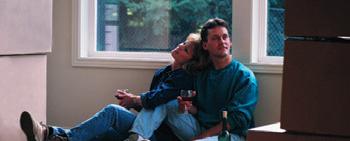
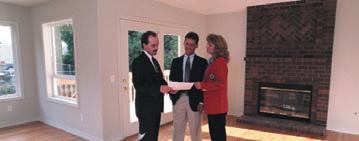
The following account comes from a group of Year 7 students from Matthew Gibney Catholic Primary School in High Wycombe: To pay our respects to our beloved Pope of 27 years, Pope John Paul II, the community and students of Matthew Gibney Catholic Primary School showed our love for him by organising numerous activities to give thanks for his life.
On Monday, when the school and parents came to the weekly Prayer Assembly, our Assistant Principal and teacher Mrs Barton led us in the prayer of the faithful for Pope John Paul II and also a prayer to commemorate his life. Even though we were terribly sad, it was good that now the Pope was out of pain and had gone to be with God in Heaven. It was a sad but happy time. On Wednesday the Year 4, 5, 6 and 7 classes went to Mass at our Parish church, St Francis of Assisi in Maida Vale with our Parish Priest, Father Steve. All of the classes completed activities and wrote prayers to thank God for John Paul II. On Friday morning, the school community prayed the Hail Mary to thank God once again during this time of sadness and mourning.
Pope John Paul II had been shot, lived under military rule, suffered his mother’s death when he was young and suffered from Parkinson’s disease.
He lived a life that the Catholic community worldwide and the world in general will always remember.
May he rest in eternal peace.
Cameron, Mitchell, Stephanie, Stacey, Jamie and Susan, Year 7, Matthew Gibney Catholic Primary School.
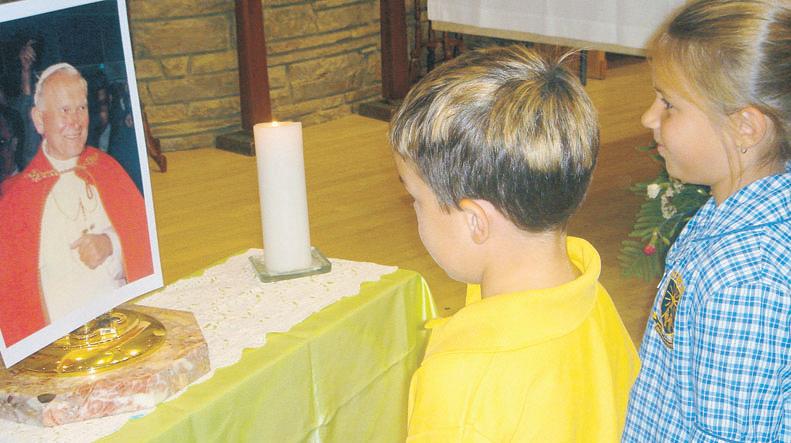
Continued from page 3
Dear God,
Please take care of the Pope. Please make the Pope feel happy up in heaven.
- Claudia, Year 2, Matthew Gibney Catholic
Primary, High Wycombe
Dear God,
Please take care of the Pope in heaven and make the Pope be safe and happy.
- Isabelle, Year 2, Matthew Gibney Catholic
Primary, High Wycombe
Dear God,
We pray for the good things the Pope has done, and please make the Pope happy in heaven.
- James, Year 2, Matthew Gibney Catholic
Primary, High Wycombe
Dear Lord, We pray for John Paul II. Please take good care of him because he was loving and inspired a lot of people. Thank you for letting him live with us.
- Mitchell, Year 4, Matthew Gibney Catholic
Primary, High Wycombe
Dear Lord, We pray for Pope John Paul II because we want you to look after him. He was a very loving and caring man. He loved everyone and we love him.
- Madeleine, Year 4, Matthew Gibney Catholic Primary, High Wycombe





 ■ By Derek Boylen
■ By Derek Boylen
“[Tell them] I have always tried to be near to you” Pope John Paul II murmured in his final hours when he heard that young people had gathered in St Peter’s square to pray for him.
Any young person who has met John Paul or listened to him speak at a World Youth Day will understand the intimacy with which those words were extended. John Paul II loved young people. In a Church that is often criticised for losing touch with the young John Paul loved them and they loved him back. At World Youth Day in Denver, as in nearly every other similar event, he was greeted to the main stage by thousands and sometimes millions of young people calling “JPII we love you!”
In Toronto in 2002 he returned the gesture saying “JPII he loves you!” much to their amusement.
He is the only Pope this generation has known and he has had a marked impact.
Wherever he went during his pontificate, young people flocked to him - drawn like a magnet to hear him speak and in turn be listened to. Like a magnet they left
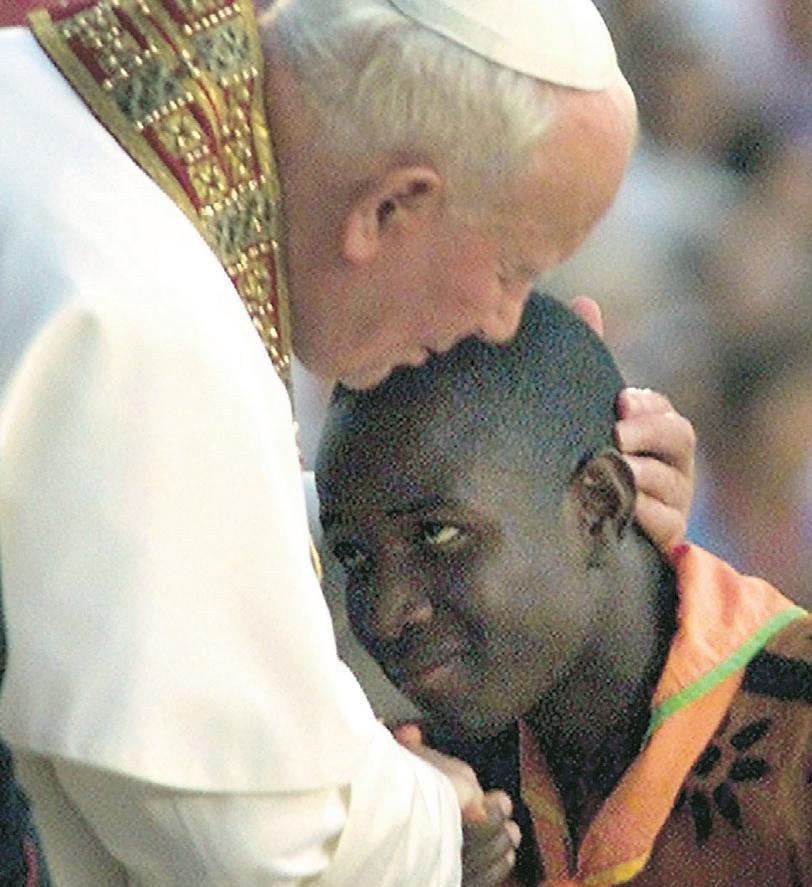
him positively charged, becoming his greatest advocates and advocates of the gospel.
Even before becoming Pope in 1978, John Paul had an affinity with the young. As a priest in Poland and later as bishop and archbishop of Krakow he always made time to spend with youth. During his early years as a priest his contemporaries noted that he always felt a need to connect with young people.
Young people enjoyed spending time with him too. Indeed it was
in his early years as a priest that John Paul, then Karol Wojtyla discovered what he refers to as the fundamental importance of youth. Youth he believed was a stage given to every person as a responsibility.
It is a time when we are like the young man in the Gospel searching for answers. Not only for the basic meaning of life but also for a concrete way to go about living this life. It was for these reasons that John Paul had a heartfelt conviction that every
Dear Lord,
We pray for John Paul II. Look after him because he was a loving and caring and forgiving man. Thank you very much.
- Zac, Year 4, Matthew Gibney Catholic Primary, High Wycombe
Dear Lord,
We pray for Pope John Paul II. Please take care of this good man. Thank you for this man.
- Shelby, Year 4, Matthew Gibney Catholic Primary, High Wycombe
Dear Lord, We pray for Pope John Paul II. God, look after him in heaven and let him sleep and rest. Thank you for helping him.
- Tahlia, Year 4, Matthew Gibney Catholic Primary, High Wycombe
Dear Lord,
We pray for Pope John Paul II who died. Help us to pray to John Paul II. Thank you for looking after him.
- Alastair, Year 4, Matthew Gibney Catholic Primary, High Wycombe
This is a man that took care of people. He gave love to me and to others. I’ve never seen such a joyful, lovely, nice, sharing, kind man. He will always be in my heart. I love you forever and ever. He is a very, very special man. Now I should let him rest in peace.
– Helen, Year 4, Our Lady of Mercy Primary School, Girrawheen
He has been with us for many years and I hope he will hear the things I want to say to Pope John Paul the second, who passed away. May he rest in peace. He is in heaven looking after us just like God. “May we always remember him”.
– Leanne, Year 4, Our Lady of Mercy Primary School, Girrawheen
He was a wonderful person who not only travelled Rome but he travelled all around the world. He was a generous man who even visited people who tried to kill him. He would help those who needed help and who asked for help. Unfortunately he got very sick and died on 3 April 2005. He was Pope for 26 wonderful years and I will miss him. I hope the next Pope is just like him.
– Desiree, Year 6, Our Lady of Mercy Primary School, Girrawheen
The Pope meant my life. I believed in him, he led me to do the best. I’ll really, really miss him and I wish that he did not die.
– Sarah, Year 5, Our Lady of Mercy Primary School, Girrawheen
To John Paul II, May you rest in peace. You have served our countries for a long time and we thank you for your time and energy. It is a very sad time for many people, but I am sure you will help us get through it. You will always be in our hearts.
– Anon, Ursula Frayne Catholic College, Victoria Park
The Pope was a very special part of our lives and I am very sad that he had to leave us. He was a very important part of our Church. We hope he will look upon us in heaven and I hope he will bless us from heaven.
– Tahlia, Year 5, Our Lady of Mercy Primary School, Girrawheen
Even though Pope John Paul died he is still living in our hearts. So please do not despair, for he did not want us to be sad. Always remember he is still looking after us from above in heaven with Jesus and God with all the other Popes that are in heaven.
– Gia, Year 6, Our Lady of Mercy Primary School, Girrawheen
Dear Lord,
You sent us a great steward. He served you and your children well. He changed the world for the better and suffered in order to do so. May the next steward you send us be as great as the late John Paul II who has now returned to you.
– Anon, Ursula Frayne Catholic College, Victoria Park
Pope John Paul II, A man of principles who never wavered in the preservation of values relating to respect for life and justice. God Bless.
– Anon, Ursula Frayne Catholic College, Victoria Park
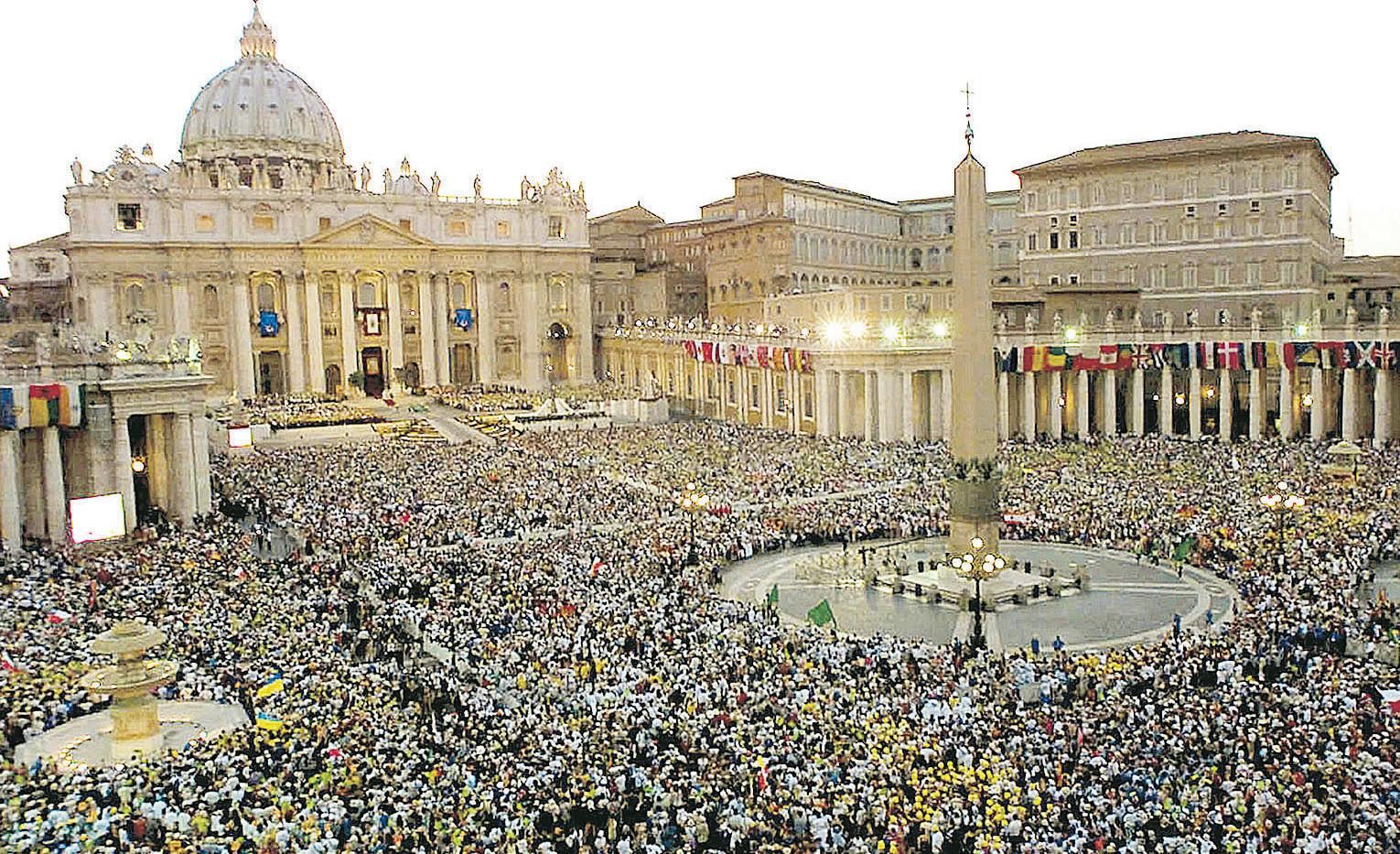
adult, beginning with parents and pastors needed to recognise this essential quality in the young. Further, they needed to love this fundamental aspect of youth.
As auxiliary bishop of Krakow he frequently ran retreats with the students in his diocese. These retreats continued even after he had taken on the role of Cardinal. At these retreats he spoke to young people on a wide range of issues including; the human person, conversion, being male and female, prayer, forgiveness, Eucharist, love and human development. Many of his talks at these retreats remain. The inspired young people would often record them to listen to and many have now been transcribed.
Even after taking on his pontificate John Paul II sought to spend time with the young whenever possible.
Every priest in Rome knew that every parish visit had to conclude with a meeting between John Paul and the parish youth. Not only in Rome did this rule apply though. Wherever he went during his pontificate he always sought the youth. Frequently in these encounters he would remind them that they were the hope of the Church and his own personal hope.
In 1984, he embarked on a series of regular engagements with young people around the world which have come to be known as the World Youth Days. But what did John Paul see in the young people of the world?
John Paul II saw, in the faces of the world’s Catholic youth, the joy that should be the gospel lived daily. Young people are for the Church a “special gift of the Spirit of God” he said.
In speaking to young people he often told them that they are the sign of hope for the Church and the world. John Paul was also familiar with the sufferings of young people around the world. A part of every World Youth Day celebration was spent listening to the hardships and persecution endured by young people on every continent. He would meet
personally with a couple of representative young people from every country present, listening to their stories.
In 2002 at Toronto, a young aboriginal from Broome had the opportunity to meet John Paul II with several others. Afterwards I asked him what the encounter was like; he said that it was like spending time with a loving grandfather.
In speaking to young people and listening to them John Paul II was never one to wallow in pity. He had grown up in a harsh world and continually challenged young people to address the hardships they faced armed with the Gospel. In doing so he shared with them his absolute conviction that they could change the world.
John Paul frequently spoke about our culture of death and he charged the young with the responsibility of bringing about the culture of life.
He communicated clearly that he would be walking with them and wherever possible equip them with the knowledge and experience needed to confront the world. John Paul II’s words were always clear and direct.
Director for the National Federation for Catholic Youth Ministry in the United States, Bob McCarty, has said the Pope presents young people with a noble adventure, a worthy cause.
“I have always tried to be near to you,” as some of his last words attest, John Paul was a Pope who loved the young and in turn was loved by them. I remember at World Youth Day in Toronto he said to the amassed youth “You are young and the Pope is old.” It was a simple observation but one that has stuck with me. While he may have been old he was young at heart.
His passion for Christ, the Church and the World was as powerful as the passion of youth. Instead of squashing the passion of the young around him by justifying the way of the world he gave their passion direction and confidence.
Edgewater
A commemorative service was held at Mater Dei College in Edgewater involving all 950 students and 80 teaching and ancillary staff.
The service was lead by College Chaplain, Fr Michael Leek, who reflected on John Paul’s words and deeds. The service also included personal reflections from Year 12 students on quotes taken from Archbishop Hickey’s ‘Pope John Paul II Speaks To Youth’ book that had been distributed to all Year 12 students earlier in the year. These were accompanied by images of the Pope projected onto two large screens in the Bernie Boss Hall.
The staff contribution included a male voice choir comprising the Principal, Clem Mulcahy, the Religious Education Coordinator, Peter Higgins, the Music Coordinator, Vince Basile, and the College Psychologist and Coordinator of Special Ministry, Paul Russell, who sang the Regina Caeli in recognition of the particular Marian devotion of the Pope.
Excerpts from the Pope’s 2005 Easter message were read by the Deputy Principal, Jeff Middleton, in response to the Gospel reading, on the Road to Emmaus from St Luke.
In the 26 years of his pontificate John Paul has addressed literally millions of young people; affirming them, challenging them, inspiring them. Every one of them today is an ongoing testimony of John Paul’s pontificate.
“Mater Dei College, with its devotion to Mary, shared a special bond with the Holy Father and so has been saddened by his passing,” Mr Middleton added.
After the Prayer of the Faithful from Year 12 students, the service concluded with vocal teacher, Kerry Byrom-Carter, accompanied by the College orchestra, singing the Magnificat.
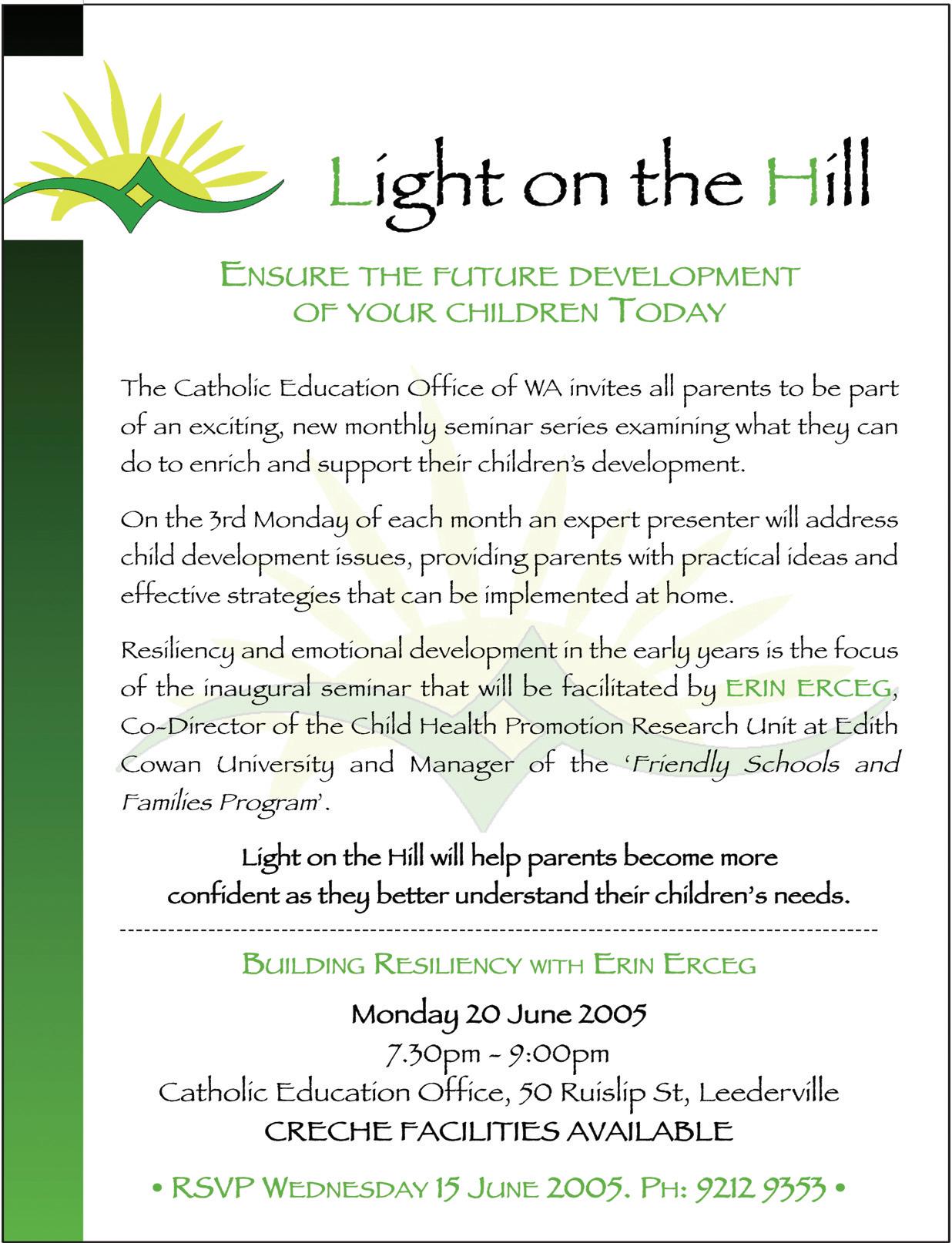
In many of the outpourings since the world was informed of the Pope’s death, much has been said about his conservative views on abortion and women’s ordination.
But the secular press has little understanding of the wonderful and powerful writings of John Paul II on the subject of women and femininity.
In a 1995 Letter to Women JPII thanked women for all they have done, apologised for the Church’s failure to always recognise their contributions and condemned the “long and degrading history” of sexual violence against women.
Evaluating the women’s liberation movement as being generally positive, the Pope called for changes to make women’s equality a reality in the world. He called for equal pay for equal work, protection for working mothers and fairness in career advancement.
In 2004, for the first time, the Pope appointed two women theologians to the prestigious International Theological Commission and named a Harvard University law professor, Mary Ann Glendon, to be president of the Pontifical Academy of Social Sciences.
As significant as his 1995 Letter to Women was, it is only a small part of his much larger contribution to the debate on the role of women in society.
While equality has been the driving force behind so much of the feminist movement, for the Pope the true power of femininity lies not in woman’s likeness to men, but in their difference.
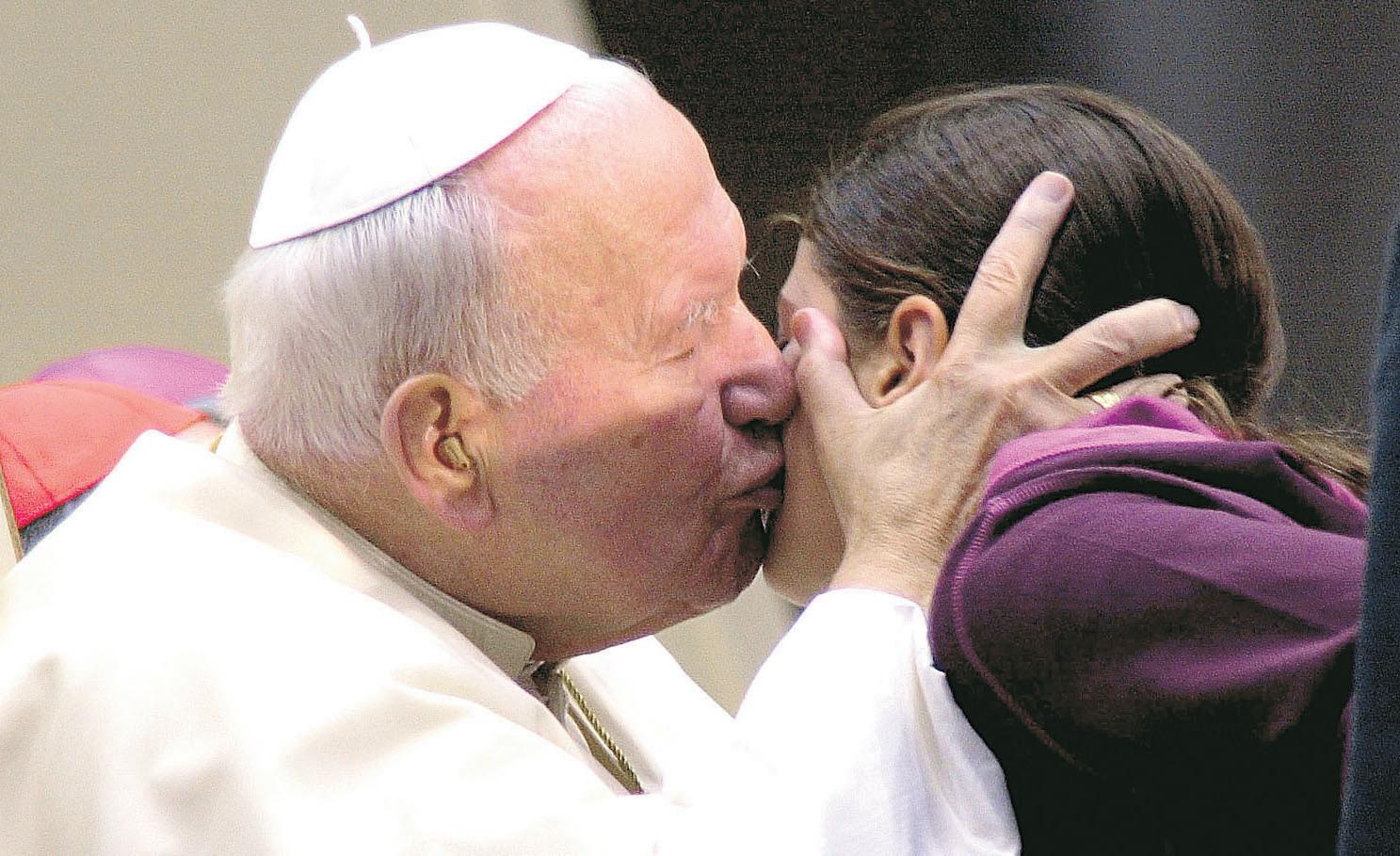
This sentiment is being echoed by many younger women these days who can see that by downplaying motherhood women are devaluing that which makes them innately female.
What makes John Paul II’s writings on women so appealing is that they are philosophically based in reality - for women this has been a particularly fresh approach.
While the Pope carefully avoided discussing women exclusively in terms of their possible roles as virgins or mothers, he exalted the virtues of both.
He repeatedly pointed to women’s potential as bearers of life as part of the “feminine genius” that the world so desperately needs
as it struggles against the “culture of death” marked by war, abortion and euthanasia.
As significant as his 1995 Letter to Women was, it is only a small part of his much larger contribution to the debate on the role of women in society.
This “genius” is something the Pope said women have all on their own.
“[It] is vitally essential to both society and the Church…[She] is endowed with a particular capac-
ity for accepting the human being in his concrete form.
“Even this singular feature which prepares her for motherhood, not only physically but also emotionally and spiritually, is inherent in the plan of God who entrusted the human being to woman in an altogether special way,” the Pope said. In May 2000, the Pontifical Athenaeum “Regina Apostolorum,” in Rome held an international Congress on the topic “A New Feminism for a New Millennium.”
Mary Ann Glendon, who was the Vatican representative at the UN Beijing Conference, presided over the Congress. The Pope said this new feminism had to be free of “macho’ constraints. This
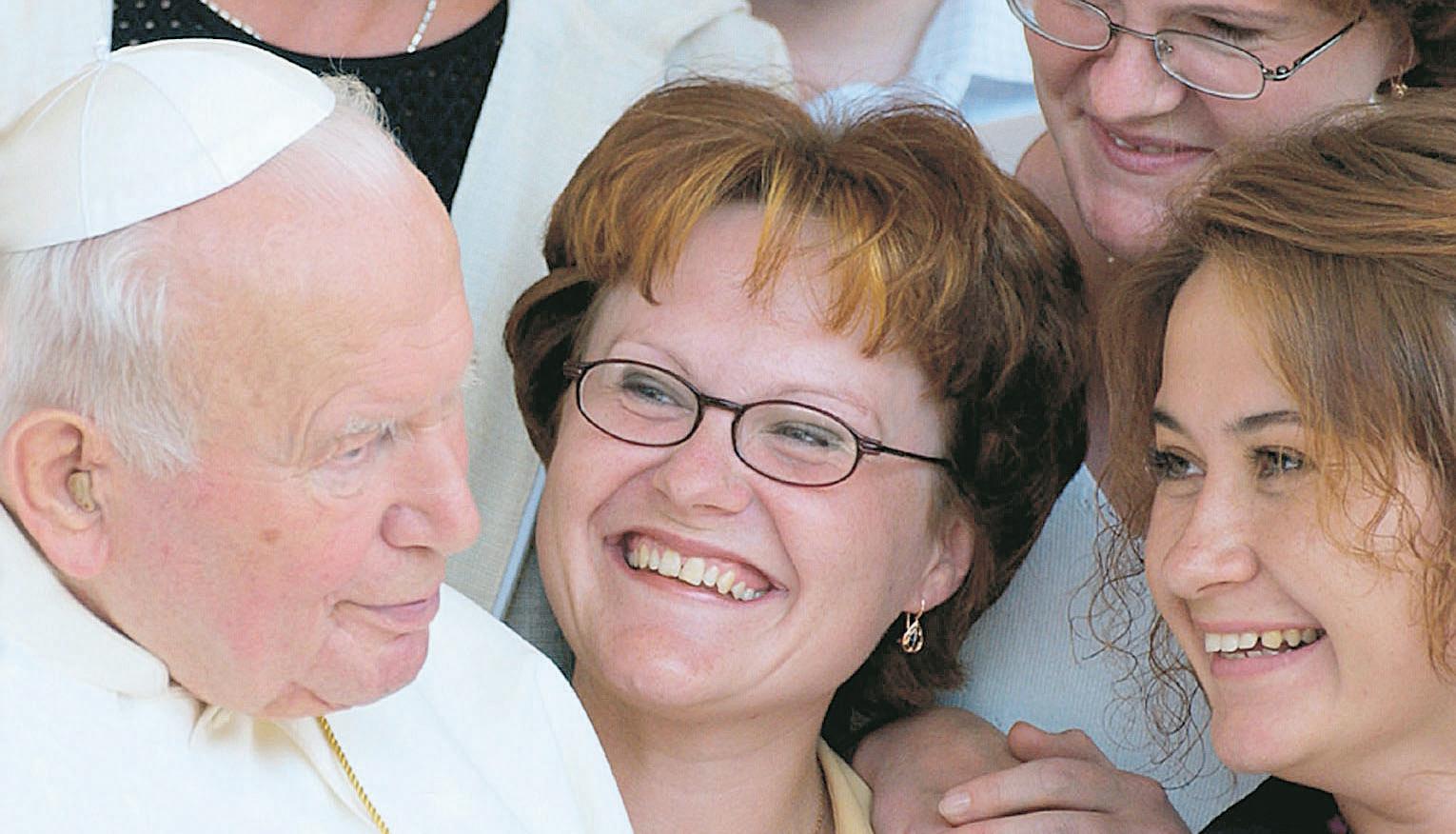
meant that women would not be evaluated against masculine virtues.
At the time, UN groups were calling for the ratification of agreements reached at the Beijing conference, which included doing away with “Mother’s Day.”
Glendon explained that women must be able to discern a new feminism, separate and distinct from much of the current feminist ideology.
“A new and better feminism means aiming for a higher end to free every woman in the process of perfecting her nature, with the objective of transforming culture in terms of support of life,” she said. “The great limitations of the feminist movement of the 70s stem from the dogmatism of its ideology.
“The idea of freeing yourself from the responsibilities of woman and mother to replace man was an error. The result has been to confuse feminine identity, leaving women alone to face the difficulties of work and family,” Glendon explained.
“At present the majority of young women of the new generations reject the feminists’ definition. They reject the idea of living in constant antagonism with men.
“They do not accept the necessity of being closed to marriage and the family, and they are especially opposed to the intolerant and radical attitude that is typical of some feminists,” she continued.
This new feminism also translates to the Pope’s Theology of the Body, which talks about the innate differences of men and women and how they complement each other.
The Pope taught that women and men have complementary natures and their “diversity of roles” in the Church and in the family are a reflection of that reality.
The Pope’s teaching on complementarity formed the basis for a 2004 document by the Congregation for the Doctrine of the Faith on male-female collaboration in the Church and society. Describing discrimination against women and male-female rivalry as results of sin, the document said the differences between the sexes are part of God’s plan for creation - not social constructs - and that Church and society benefit when the gifts of both are recognised.
The passing of John Paul II has been lauded by some as a new opportunity for women in the Church.
Ironically, unless we embrace new feminism we are only continuing to be constrained by the machoisms of secular society.
By measuring ourselves against masculine desires we are only continuing to devalue our unique feminine genius. It is up to women now to understand the true power of the Pope’s message.
The family and the Body of Christ were the bookends of John Paul II’s pontificate. Over two thirds of what the Church has written on sex, marriage and the family has been written during the pontificate of John Paul II.
It seems providential that the Pope died in the Year of the Eucharist, having spent his life helping families to better understand what it means to be the Body of Christ as “domestic church”.
In 1980 John Paul called the first General Assembly of the Synod of Bishops in his pontificate and the theme was the Church’s responsibility toward families and family life.
The result of this synod was the papal exhortation Familiaris Consortio . John Paul taught that marriage was much more than a mere contract and that the family could not be simply considered a convenience for its members.
Familiaris Consortio recognised family as the domestic church, its mission to “guard, reveal and communicate love” noting that the mission is a “real sharing in God’s love for humanity and the love of Christ the Lord for the Church.”
The words of Familiaris Consortio were in many ways prophetic of the messages that he would continue to challenge the world with for the next 24 years of his pontificate. Words that affirmed the dignity of women, the role of the husband and father, the rights of children, the elderly, rights of parents and the value and sanctity of marriage. Most importantly it established the need for the Church to be an advocate and pastoral provider for the family in a challenging often hostile cultural climate.
John Paul II had clearly been reflecting on marriage and family long before taking up the papacy. His first book was titled Love and Responsibility, which he wrote while a professor at the Catholic University of Lublin.
His impetus for writing Love and Responsibility was his work with students. As George Weigel, the Pope’s biographer, notes John Paul felt that “young men and women had a right not simply to instruction, but to an affirmation and celebration of their vocations to marriage, which included a vocation to sexual love.”
From the beginning John Paul II wanted to elucidate the Church’s teachings on sexuality, marriage and the family. Between 1979, shortly after taking office, and the end of 1984, he gave a series of homilies at his Wednesday General Audiences.
In recent years these homilies have come to be known as his Theology of the Body though perhaps more accurately; a theology of the person. George Weigel describes them as a theological time bomb waiting to go off. Already these writings have inspired numerous initiatives around the world.
While the World Youth Days have come to be known as an amazing global phenomenon John Paul II began another remarkable event called the World Meeting of Families.
Like the World Youth Day events, these great gatherings take place around the world in different countries drawing families from around the globe. Indeed, they were the inspiration for our own two national family gatherings.
John Paul II was a champion of the family. In numerous speeches and documents he criticised a culture that is hostile to the
family and encouraged the Church to take action to support families.
Outside of the Church he was an outspoken advocate for families too. In December 2004 he addressed the new ambassadors from Malawi, Thailand, Luxembourg, Kenya and Norway calling for efforts to strengthen families.
Earlier that year he criticised the world media, challenging parents, communicators and public authorities to fight an agenda “hostile” to family values.
It is difficult to overestimate the value of the family to John Paul II. He saw it as critically important to developing the culture of life in both the Church and the world.
In speaking about the development of a unified Europe in June 2004 he said, “the future depends on the family. One can say that family is the mirror of society, and that is also true in the new Europe being constructed… The evolution of the family is and will be the most important indicator of the cultural and institutional development of the continent.”
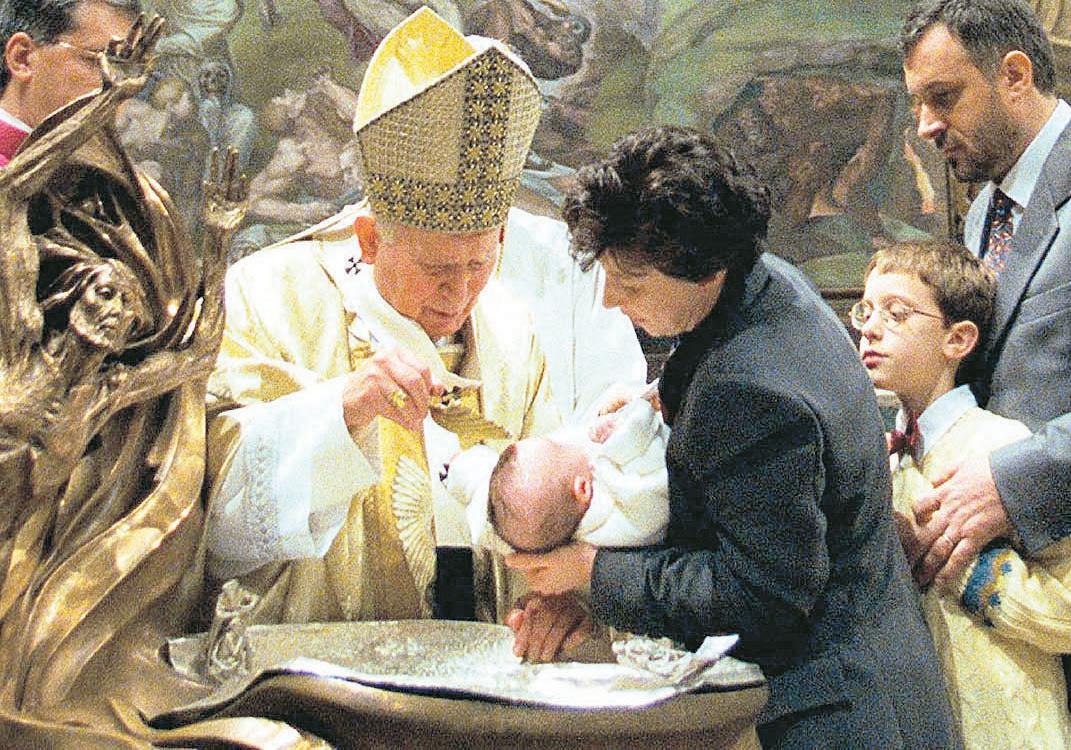
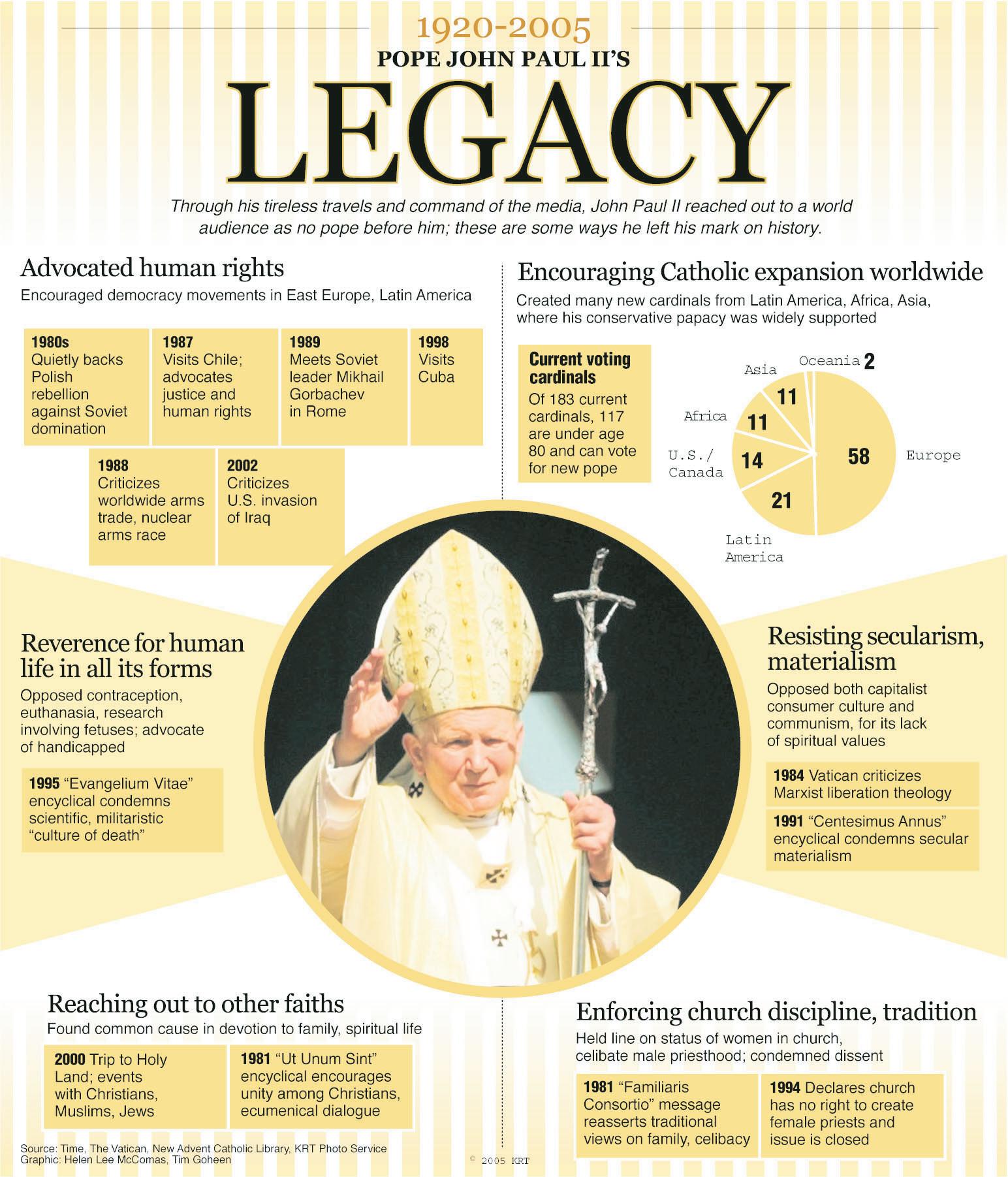
As a voice of conscience for the world and a modern-day apostle for the Church, John Paul II brought a philospher's intellect, a pilgrim's spiritual intensity and actor's timing for the dramatic. Here JOHN THAVIS looks at the man whoM we loved as John Paul II.
Pope John Paul II, who died on April 2 at age 84, was a voice of conscience for the world and a modern-day apostle for the Church.
As head of the Church for more than 26 years he was a tireless evangeliser at home and abroad, but toward the end his frailty left him unable to murmur a blessing.
The first non-Italian Pope in 455 years, Pope John Paul became a spiritual protagonist in two global transitions: the fall of European communism, which began in his native Poland in 1989, and the passage to the third millennium of Christianity.
The new millennium brought a surge in global terrorism, and the Pope convened interfaith leaders to renounce violence in the name of religion. While condemning terrorist attacks, he urged the United States to respond with restraint, and he sharply criticised the US-led war against Iraq in 2003.
As pastor of the universal Church, he jetted around the world, taking his message to 129 countries in 104 trips outside Italy. He surprised and pleased millions by communicating with them in their own languages. At times, he used the world as a pulpit: in Africa, to decry hunger; in Hiroshima, Japan, to denounce the arms race; in Calcutta,
India, to praise the generosity of Mother Teresa. Whether at home or on the road, he aimed to be the Church’s most active evangeliser, trying to open every corner of human society to Jesus Christ.
Within the Church, the Pope was just as vigorous and no less controversial. He disciplined dissenting theologians, excommunicated self-styled “traditionalists,” and upheld unpopular Church positions like the pronouncement against artificial birth control. At the same time, he pushed Catholic social teaching into relatively new areas such as bioethics, international economics, racism and ecology. In his later years, the Pope moved with difficulty, tired easily and was less expressive, all symptoms of a nervous system disorder believed to be Parkinson’s disease. By the time he celebrated his 25th anniversary in October 2003, aides had to wheel him on a chair and read his speeches for him. Yet he pushed himself to the limits of his physical capabilities, convinced that such suffering was itself a form of spiritual leadership.
He led the Church through a heavy program of soul-searching events during the Great Jubilee of the Year 2000, fulfilling a dream of his pontificate. His long-awaited pilgrimage to the Holy Land that year took him to the roots of the
faith and dramatically illustrated the Church’s improved relations with Jews.
In a landmark document, the apostolic letter Novo Millennio Ineunte (“At the Beginning of the New Millennium’’), the Pope laid out his vision of the Church’s future and called for a “new sense of mission’’ to bring Gospel values into every area of social and economic life.
Pope John Paul’s personality was powerful and complicated. In his prime, he could work a crowd and banter with young and old, but spontaneity was not his speciality. As a manager, he set directions but often left policy details to top aides. His reaction to the mushrooming clerical sex abuse scandal in the United States in 2001-02 underscored his governing style: He suffered deeply, prayed at length and made brief but forceful statements emphasising the gravity of such a sin by priests.
The Pope was essentially a private person, with a deep spiritual life - something that was not easily translated by the media. Yet in earlier years, this Pope seemed made for modern media, and his pontificate has been captured in some lasting images. Who can forget the Pope wagging his finger sternly at a Sandinista priest in Nicaragua, hugging a young AIDS victim in California or
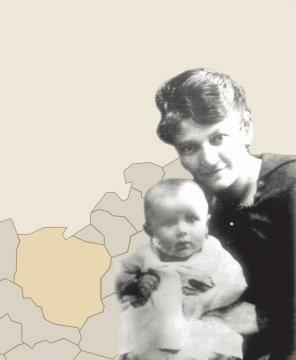
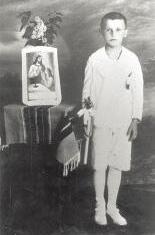
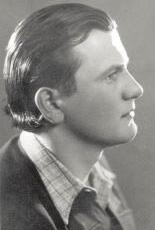
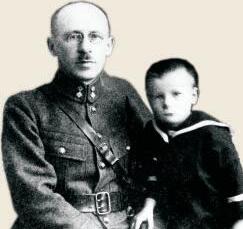
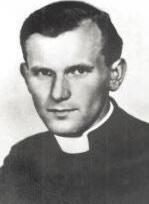
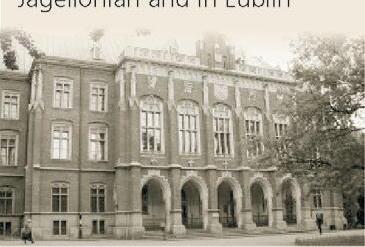
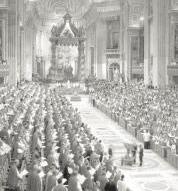
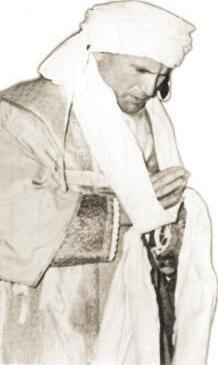


huddling in a prison-cell conversation with his would-be assassin, Mehmet Ali Agca?
Karol Jozef Wojtyla was born May 18, 1920, in Wadowice, a small town near Krakow, in southern Poland. He lost his mother at age 9, his only brother at age 12 and his father at age 20. Even as a young age, acquaintances said, he was deeply religious and contemplative.
An accomplished actor in Krakow’s underground theatre during the war, he switched tracks and joined the clandestine seminary after being turned away from a Carmelite monastery with the advice: “You are destined for greater things.”
Following theological and philosophical studies in Rome, he returned to Poland for parish work in 1948, spending weekends on camping trips with young people. When named auxiliary bishop of Krakow in 1958 he was Poland’s youngest bishop, and he rose quickly through the ranks, becoming archbishop of Krakow in 1964. He also came to the attention of the universal Church through his work on important documents of the Second Vatican Council.
Though increasingly respected in Rome, Cardinal Wojtyla was a virtual unknown elsewhere when elected Pope on October 16, 1978. In St Peter’s Square that night, he

set his papal style in a heartfelt talk - delivered in fluent Italian, interrupted by loud cheers from the crowd.
The pontificate began at a cyclone pace, with trips to several continents, flying press conferences, an encyclical on redemption, an ecumenical visit to the Orthodox in Turkey and several important meetings with world leaders.
On May 13, 1981, a Turkish terrorist’s bullet put his papacy on hold for several months.
The Pope was soon back on the road, eventually logging more than 1.1 million kilometres. His 14 visits to Africa were part of a successful strategy of Church expansion there; in Latin America he aimed to curb political activism at the expense of Church teaching by clergy and the inroads made by religious sects.
The Pope later approved a universal catechism as one remedy for doctrinal ambiguity. He also pushed Church positions further into the public forum. In the 1990s he urged the world’s bishops to step up their fight against abortion and euthanasia, saying the practices amounted to a modernday “slaughter of the innocents.” His sharpened critique of these and other “anti-family” policies helped make him Time maga-
zine’s choice for Man of the Year in 1994. His earlier social justice encyclicals also made a huge impact, addressing the moral dimensions of human labour, the widening gap between rich and poor and the shortcomings of the free-market system. The Vatican published an exhaustive compendium of social teachings in 2004.
The Pope was a cautious ecumenist, insisting that real dif-
ferences between religions and churches not be covered up.
Yet he made several dramatic gestures that will long be remembered: They included launching a Catholic-Orthodox theological dialogue in 1979, visiting a Rome synagogue in 1986 and hosting world religious leaders at a “prayer summit” for peace in 1986. In 2001, he made a historic visit to Greece, where he met with Orthodox leaders, then trav-
elled to Damascus, Syria, where he became the first pontiff to visit a mosque. To his own flock, he brought continual reminders that prayer and the sacraments were crucial to being a good Christian. He held up Mary as a model of holiness for the whole Church, updated the rosary with five new “Mysteries of Light” and named more than 450 new saints - more than all his predecessors combined CNS
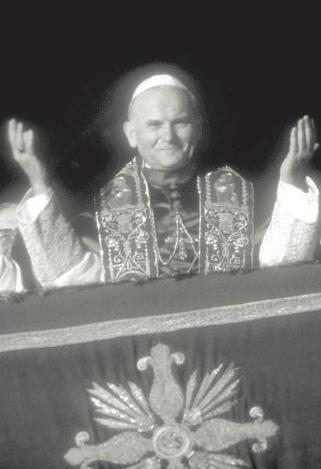
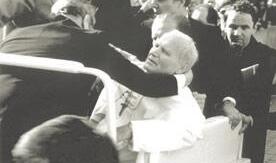
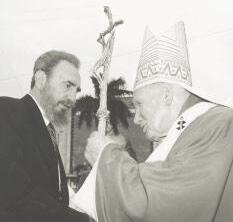
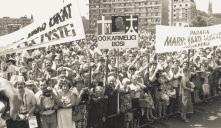
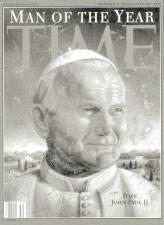
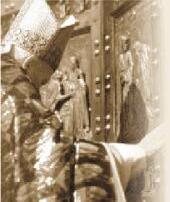
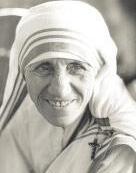
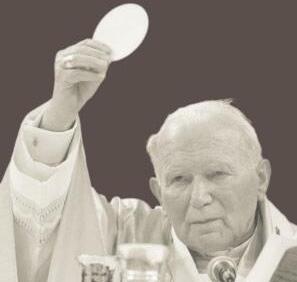








 ■ By Mark Reidy
■ By Mark Reidy
While tributes pour in from the secular world highlighting the indelible imprint Pope John Paul II has left on the world few, if any, have given recognition to one of his most profound and powerful insights, his “Theology of the Body”.
This series of writings was his response to a world at the cultural crossroads of life and death. He knew that the Church’s previous attempts to address sexual issues had divided believers. Many people had perceived that past authoritarian and impersonal tones were an indicator of a stagnant Church out of tune with the modern world. This greatly concerned Pope John Paul who recognized that not only was the true beauty of God’s gift of sexuality being hidden from His people but it was also occurring in a sexual environment of everincreasing self-indulgence. He knew it was time to repackage the church’s teaching.
Christopher West, a US theologian and author of “The Theology of the Body Explained”
Ursula Frayne Catholic College
Victoria Park
The greatness of Pope John Paul II was recognised by the students and staff of Ursula Frayne Catholic College who offered prayers in the shadow of the school flag that flew at half-mast as a sign of respect. A shrine established in the College chapel provided a means by which the students could pray for the Pope, learn a little about his life and write their own prayer to/for him. At the end of the week, a Liturgy of the Word service was held at both the senior and junior campuses.
At both services there was a sense of the sacred as the students realised that this leader of the Catholic Church had done great things for humankind the world over.
It is also interesting to note that the values that Pope John Paul II gave great witness to – compassion, mercy, justice and his respect for the human dignity of all – are the values that the College aspires to.
who has spent a number of years analyzing the profound revelations of this Pontiff, points out that he has produced over two-thirds of what has been professed on sexuality in the entire history of the Church. West believes that after 2000 years of Christian reflection and after stumbling through periods of darkness and misunderstanding, the Church has finally come up with a winning formula.
He believes that it is no coincidence that John Paul II arrived in an era when the world was beginning to embrace a culture of death. With the unprecedented rise of contraception, adolescent sex, premarital pregnancies, unwanted children, sexual disease, abortion, rape, euthanasia and marriage breakdown, he believes there has never been a more crucial moment in history for the Church to fully understand and embrace its God-given wisdom.
Sin, the Pope explains, enters the world as a corruption of genuine self-giving, which is motivated by love. The human heart, he says, becomes a battlefield between the desire to love, ie, what can I give to another, and the innate desire for self-gratification, which West believes, has contributed to today’s culture of death.
He began by calling men and women to fully embrace their sexual natures and then to share with one another the gift of complete self-donation in marriage. As West states, “John Paul II unveils and demystifies what has for so long been misunderstood: that the Catholic Church does not, in fact, want to suppress the joy of sex, but rather elevate it to what it was always meant to be – a foretaste of Heaven”.
The impact of such revelations is far-reaching and culture changing. A true understanding for example, of St Paul’s teaching on the submission of women to men, as clarified by John Paul II, advocates that as Christ unconditionally gave Himself for the Church, so too must a husband sacrifice all of his personal desires and self-instincts for the glory and honour of his wife and to serve her needs.
The Pope’s teachings delve deeply into the treasure chest of wisdom that has for so long been submerged in the murky waters of misunderstanding. We discover many aspects of Church wisdom that are virtually unknown: eg.
■ The Church does not teach that sexual intercourse is solely for the purpose of procreation, but that once stripped of lust and self-gratification, is also the most intimate expression of love between husband and wife.
■ Chastity is not repressive, but is in fact liberating. It frees one from the tendency to use another for selfish gratification and enables them to love others as Jesus did.
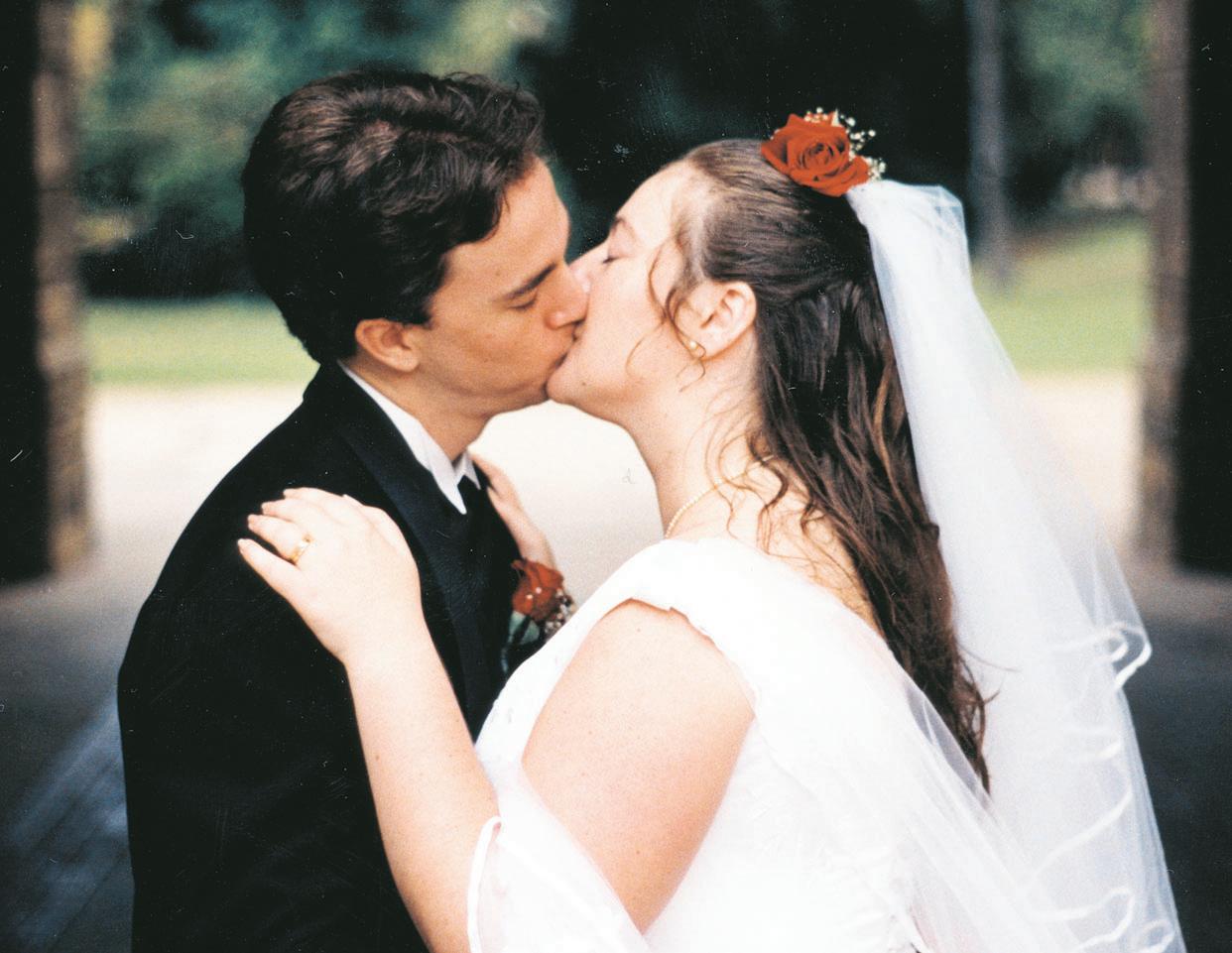
■ God created sexual drive as a “love instinct” that is designed to lead to life, but when it is cut off from God - who is the source of love and life - it becomes a selfish instinct that leads to death.
■ Contraception is a part of this death culture, as it doesn’t embrace the possibility of life. It is, effectively, one person saying to another ‘I will not give myself to you unconditionally. I will withhold my potential to create life.’ True love is total surrender to one another, not selective surrender.
■ The “freedoms” promised by the “sexual revolution” serve not to liberate, but to chain men and women to their appetites and passions. And there are so many more. But what is most surprising is that what Pope John Paul II presents is not new to the Church. He has “merely” unpackaged the teachings of Christ, albeit with the hindsight of 2000 years of reflection and given them historical context. As West suggests, he has had the courage to, “forthrightly say to
the world that human sexuality is far greater than you could imagine”.
He has, given the world a timely gift that is both the antidote to the culture of death and the theological foundation of the culture of life.
The spirit of Pope John Paul II, it seems, is destined to mould many generations to come.
For Resources on Theology of the Body contact The Record on (08) 92277080 or see Christopher West’s website at: www.theologyofthebody.com
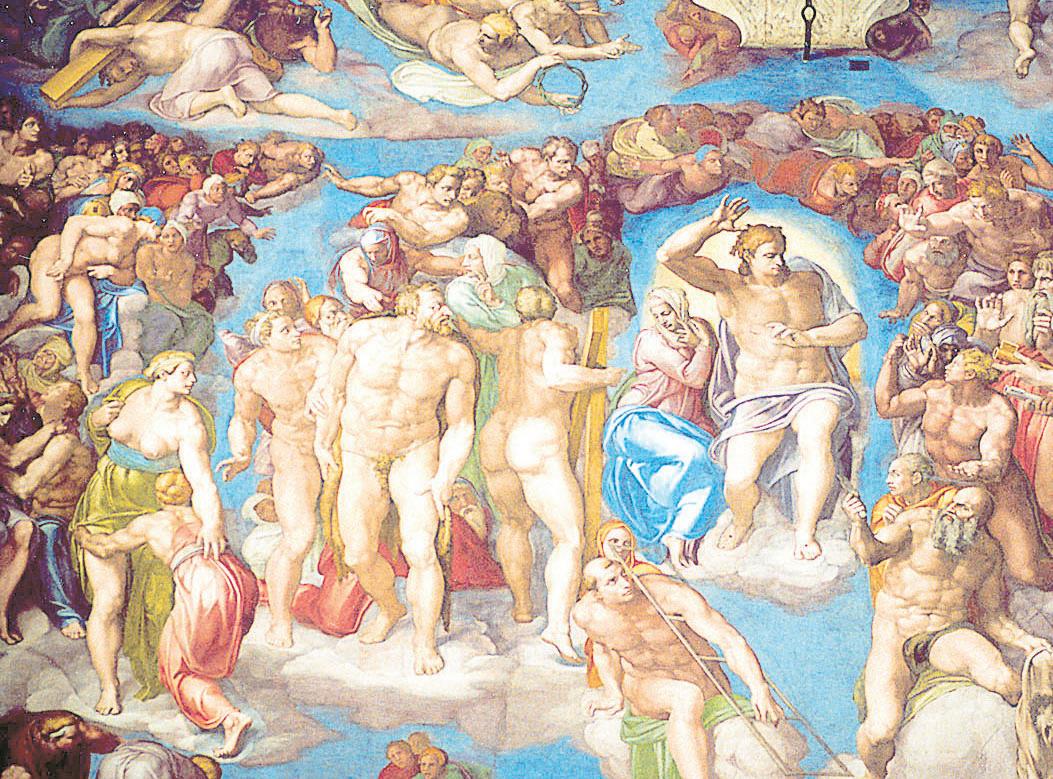
discovery
New Pope: living in the age of Benedict
As the guiding light on doctrinal issues during Pope John Paul II’s pontificate, Pope Benedict XVI was one of the most respected and influential members of the College of Cardinals.
Since 1981 the 78-year-old Pope Benedict - regarded as one of the Church’s sharpest theologianshas headed the Congregation for the Doctrine of the Faith, the Vatican department charged with keeping the teachings of Jesus central to Church life.
Over the years, Pope Benedict met quietly once a week with
Pope John Paul to discuss doctrinal and other major issues facing the Church. Insiders said his influence was second to none.
White-haired and soft-spoken, Pope Benedict comes across in person as a thoughtful and precise intellectual with a dry sense of humour. A frequent participant at Vatican press conferences, he is a familiar figure to the international group of reporters who cover the Church.
He is also well-known by the Church’s bishops around the
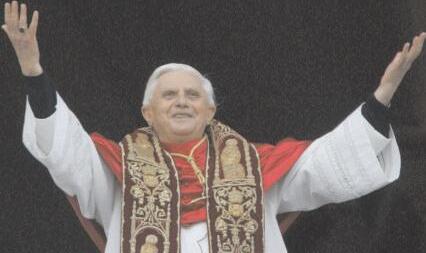
world, and his speeches often have the weight of a keynote address. When Pope Benedict spoke as a cardinal, people listened.
But Pope Benedict has also frequently criticized the growth of Church bureaucracy and its output of studies, reports and meetings. Asked once whether the Vatican would operate better in Germany, he responded, “What a disaster! The Church would be too organised.
“The saints were people of creativity, not bureaucratic functionaries,” he added.
After the collapse of Marxism as a global ideology, Pope Benedict identified a new, central threat to the faith: relativism. He said relativism is an especially difficult problem for the Church because its main ideas - compromise and a rejection of absolute moral positions - are so deeply imbedded in democratic society.
More and more, he has warned, anything religious is considered “subjective.” As a result, he said, in places like his native
Germany the issue of abortion is being confronted with “political correctness” instead of moral judgment.
Born in Marktl am Inn on April 16, 1927, the son of a rural policeman, his priestly studies began early but were interrupted by World War II.
In a book of memoirs, Pope Benedict recalled that while a seminarian he was enrolled by school officials in the Hitler Youth program; he soon stopped going to meetings. After being drafted in 1943 he served for a year on an anti-aircraft unit that tracked Allied bombardments.
At the end of the war he spent time in a US prisoner-of-war camp before being released. Ordained in 1951, he came to the Second Vatican Council as an expert. At the council, he was said to have played an influential role in major documents.
May 2005
Students and staff from Our Lady of Mercy Primary School in Girrawheen commenced their days of mourning for Pope John Paul II with a Liturgy of the Word that was conducted in the school undercover area shortly after the children arrived at school.
A picture of the Pope was left in the school undercover area and the children brought in flowers to pay their respects throughout the week.
Flowers and a photograph of the Pope were also displayed in the school Chapel where classes visited to pray.
On the day of the Pope’s funeral, the children, staff, parents and parishioners joined together for a special Mass in Our Lady of Mercy Parish Church. The Mass was celebrated by Father Oliver Ryan who was being farewelled by the school and parish communities after many years as Parish Priest.

Australia
Teach your child sign language before they can talk!
Benefits of teaching your child to sign include: Reduced frustration and tantrums, talking earlier, improved cognitive and social development, and a closer bond with parents and carers.
Sign Speak is a parent workshop developed by a practising speech pathologist and mother of three.
For more information contact: Karen and Derek Boylen 0409 682 923.
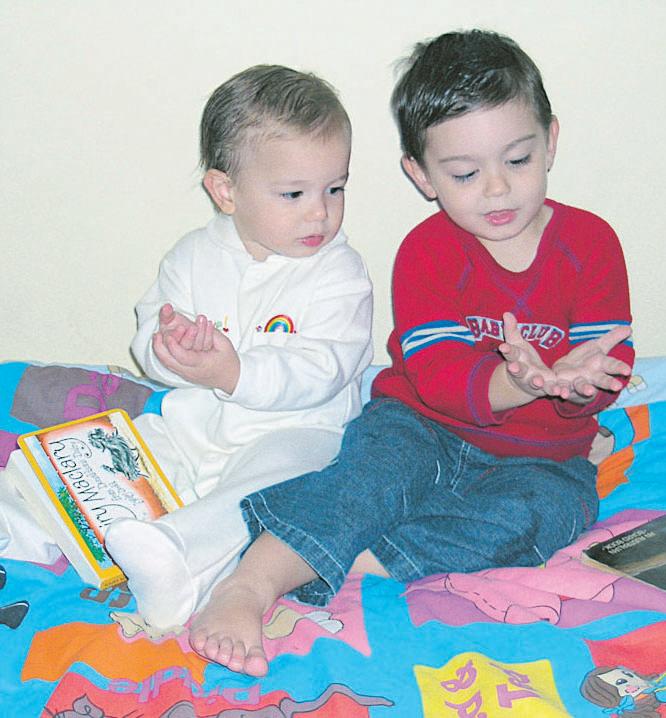
Boys sign “book” to show Mummy

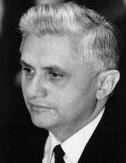
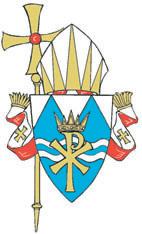
The Co-ordinator is responsible to the Bishop for supporting the development of the parishbased Youth Apostolate and implementing the Diocesan Youth Strategic Plan.
Essential:
* Undergraduate qualifications in theology, education or equivalent;
* Experience and expertise in parish-based youth ministry and/or education;
* An understanding of youth ministry within a Catholic context; and
* An ability to work collaboratively with other ministries and key partners within the Diocese.
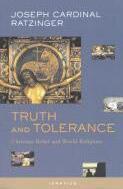

Remuneration negotiable according to relevant qualifications and experience. Interested applicants should request an information package from: Maureen Sewell tel (02) 9683 6277 or diocese@parra.catholic.org.au
Please send your Curriculum Vitae to:
The Vicar General - Diocese of Parramatta, PO Box 6644, Parramatta, NSW, 2150. Applications close on Monday 9 May 2005.
The successful applicant will be required to undergo screening in accordance with the Commission for Children and Young Peoples Act 1998.
Santa Clara School
St James
A very powerful and meaningful prayer service held prior to the weekly school assembly helped the Santa Clara School community in St James reflect on the life of Pope John Paul II.
Two of the school’s Year 7 Student Councillors led the prayer and reflection that included statements about the Pope's life, as well as Scripture readings and prayers.
The last page of the school newsletter was also dedicated to the Holy Father through the publishing of a photograph and prayer for the repose of his soul.
Kununurra
At St Joseph’s School in Kununurra, two celebrations were held to commemorate the life of Pope John Paul II.
On Wednesday 6 April, a special whole school prayer service celebrating the life of Pope John Paul II was held. Incorporated in the service was an electronic slideshow of photos that illustrated aspects of the Pope’s life and his service to the Church. The service concluded with the singing of the Hail Mary as a tribute to the man who placed his trust in the Mother of our Lord, Jesus Christ.
The theme continued the following day at the school’s final Mass for the term during which the Year 2/3 class performed a liturgical dance to the song Every Person is a Gift of God.
Broome
At St Mary's College in Broome, a memorial prayer service was held to coincide with the morning of the Pope's funeral.
The students were led in prayer by the College’s Head of Junior School, Jamie Sgherza, and Head of Early Childhood, Angela Alibrando.
Following the prayer service, the students were led in procession by the Student Representative Council through the library to view a display of special moments in the Pope's life and to pay their respects at the Memorial Prayer Table that was dedicated to the Pope.
Spooky, how fast our intellectual class agreed on a way to damn this much-mourned Pope without actually seeming to prance on his grave.
In Australia, this new slur, this fashionable falsehood, was best put by the Women’s Electoral Lobby’s Sarah Maddison.
“There is little doubt that under this Pope’s leadership the Vatican’s line, particularly on the use of condoms in Africa, has caused the death of thousands of people,” she smirked.
The Pope. A murderer. How delicious.
So delicious, that SBS and Fairfax journalists just had to repeat it, insisting the Pope killed thousands - wait, millions - of Africans by banning condoms in the fight against AIDS.
It’s as if they read from the same manual, Chants for Leftists, now in its international truth-free edition.
In Britain, same false story. The cover story of the prestigious New Statesman magazine slavered how the dead Pope “did more to spread AIDS in Africa than prostitution and the trucking industry combined”.
Gay activist Peter Tatchell, of Outrage, snapped: “Millions of people in developing countries are orphans, having lost their parents to AIDS because of the Pope’s anti-condom dogma.”
Ditto The Independent: “It should not be forgotten that millions have died in Africa as a result of this theological rigidity.”
In France, the Liberation newspaper declared: “Blindness in the face of AIDS.” And so on and on.
I’ve listed so many examples to show how common it is for the Left, particularly the Leftist press, to believe the convenient lie - the foul smear - even when that lie defies good sense and easy-tofind facts. Once again, the Truth is more vital than the truth to
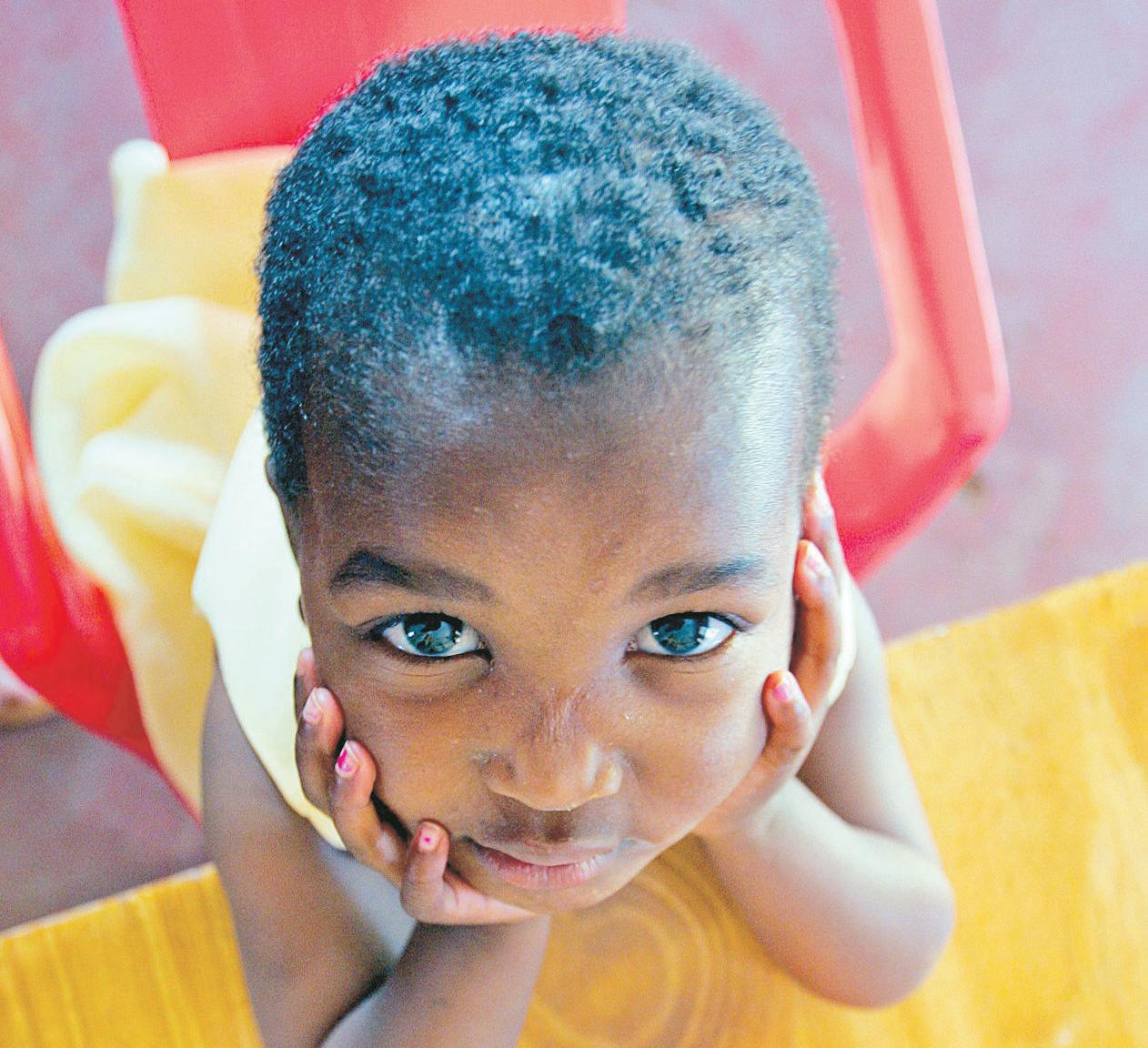
Leftists, which is why their own dogmas are so deadly. It is a fact that Pope John Paul II opposed condoms, telling African bishops again not long before his death that “fidelity within marriage and abstinence outside are the only sure ways to limit the further spread of AIDS infection”.
So is this the advice that killed millions?
First, we must believe Africans are so obedient to the Pope that they won’t wear a condom, but also so disobedient that they’ll
still have casual sex. We’d also have to believe that more were killed by having unprotected sex outside marriage than were saved by doing as the Pope said and zipping up. We must further believe that most or very many Africans are Catholic, and are hit hardest by AIDS. Naturally, the truth is the very opposite.
In contrast, Uganda, where half the people are Catholic, is the one African country that has slashed its rate of infection - from a devastating 15 per cent of all adults to “just” 5 per cent. And, heavens, it worked this miracle by doing much as the Pope had preached.
The countries with the worst HIV infection rates in the world turn out to be Swaziland and Botswana, where more than a third of adults have the virusbut only 5 per cent are Catholic. Botswana, incidentally, is procondoms, not that it seems to have helped much.
In contrast, Uganda, where half the people are Catholic, is the one African country that has
slashed its rate of infection - from a devastating 15 per cent of all adults to “just” 5 per cent. And, heavens, it worked this miracle by doing much as the Pope had preached.
Since 1986, Ugandan President Yoweri Museveni, backed by religious leaders, pushed his ABC program - telling people to Abstain until marriage, Be faithful to their partner, and, if all else fails, to wear a Condom.
This morals-heavy message was not welcomed by the usual condoms-please AIDS experts, many the kind of folk now heckling the dead Pope. Yet it worked so well that Dr Edward C. Green, a prominent AIDS adviser and medical anthropologist from Harvard’s School of Public Health, was driven to write Rethinking AIDS Prevention, to warn us to learn this lesson.
“I said it in my 2003 book that the single most important behavioural change (in Uganda) was fidelity, and most of that is marital fidelity,” Green has explained.
“The second change is the proportion of youth engaging in sex - that went down in a big way.”
Fancy that. Christian morality makes you safer. How scary is that to a progressive? And in case you’re wondering, Green says he’s a “flaming liberal” who doesn’t go to church or even vote Republican. He just follows
the facts. To make things worse, he adds: “Twenty years into the pandemic, there is no evidence that more condoms leads to less AIDS.”
If they did, Africa which imports about 700 million condoms a year with the help of international agencies, would not today have 25 million people with AIDS.
Indeed, the University of California’s Professor Norman Hearst, who has studied infection rates in condom-happy countries such as Kenya and Botswana, warns that pushing condoms and the safe-sex message so hard encourages people to be promiscuous, thinking they’re protected.
They’re not, of course. As Hearst says, condoms sometimes fail; so if you have enough sex with enough people enough times, you’re flirting with danger.
The moral of the story? The Pope was largely right: saving sex for marriage is the best defence against AIDS. Save sex, not safe sex. We’ve seen it work, as other leading AIDS workers agree.
Last year, for instance, respected AIDS experts appealed in the British Medical Journal for more to be done to preach faithfulness instead of just condoms.
“It seems obvious but there would be no global AIDS pandemic were it not for multiple sexual partnerships,” said the gurus, from groups such as the Global Fund for AIDS, the Bill and Melinda Gates Foundation, and the US Agency for International Development.
discovery May 2005 Page 13
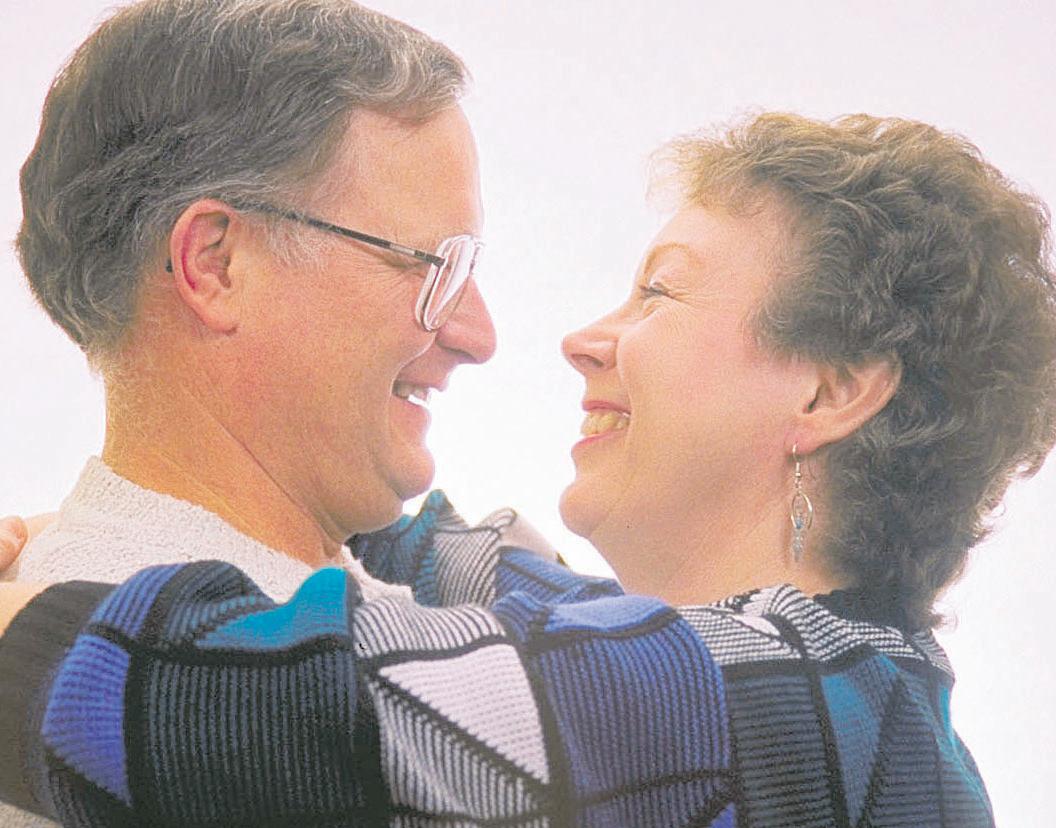
But progressives who read this will be angry. They won’t want this to be true, and so won’t believe it. Sadly, that’s how most people reason.
And why their anger? Because Christianity, or any philosophy that preaches restraint,
responsibility and a respect for facts, threatens their freedoms, such as their freedom to have sex with whomever they choose.
So, yes, the Pope was indeed the killer they fear - not of the poor and faithful in Africa, but of the cheaper pleasures of the
faithless right here. And for those now slandering this holy man, that is by far the greater sin.
- reprinted with permission of the author. Andrew Bolt writes a regular column for the Herald Sun, Australia’s largest circulation daily newspaper.
One of the most misunderstood aspects of John Paul II’s papacy was his teachings about sexuality, particularly his stance on contraception. This has certainly been the case with the media. It is also a poor reflection of the attitudes and beliefs of many in the real world though.
But for some in Perth at least, John Paul’s vision for sexuality and contraception has been an inspiration. John Paul’s teachings on the Theology of the Body, a radical development of Church understanding of the subject, have become a popular subject for many Catholics in the Archdiocese of Perth. In recent months, sessions on John Paul’s teachings organised by the Respect Life Office have been booked out.
When it comes to the crunch, though, do people really take into account John Paul’s vision for sex and sexuality? The answer is a definite “yes” for some. Over recent weeks, since John Paul’s death, the Natural Fertility Services and Family Life Education agency run by the Church in Perth have seen a dramatic increase in the number of people coming to learn Natural Family Planning. Ann O’Donnell, Director of Natural
Fertility Services and Family Life Education said “it’s seems as though the Spirit of John Paul II is at work encouraging couples and women who have been considering using NFP to take the step.” Anne Raymond, an accredited instructor with the agency, said “some people have quoted John Paul’s death as the reason they decided to book an appointment to learn NFP.”
NFP is one of several effective fertility management methods approved by the Church for couples wanting to plan their family. This method is based on couples using their natural states of infertility to avoid pregnancy and one of the big surprises for many people is that solid scientific studies have now established that natural methods at least equal and often surpass artificial contraception in effectiveness. China and India are among countries which have recently adopted large scale natural family planning methods to combat their own population problems.
■ Natural Fertility Services and Family Life Education 1800 114 010
■ Billings Ovulation Method Centres 1800 819 841
■ Fertility Care
(08) 9388 1334
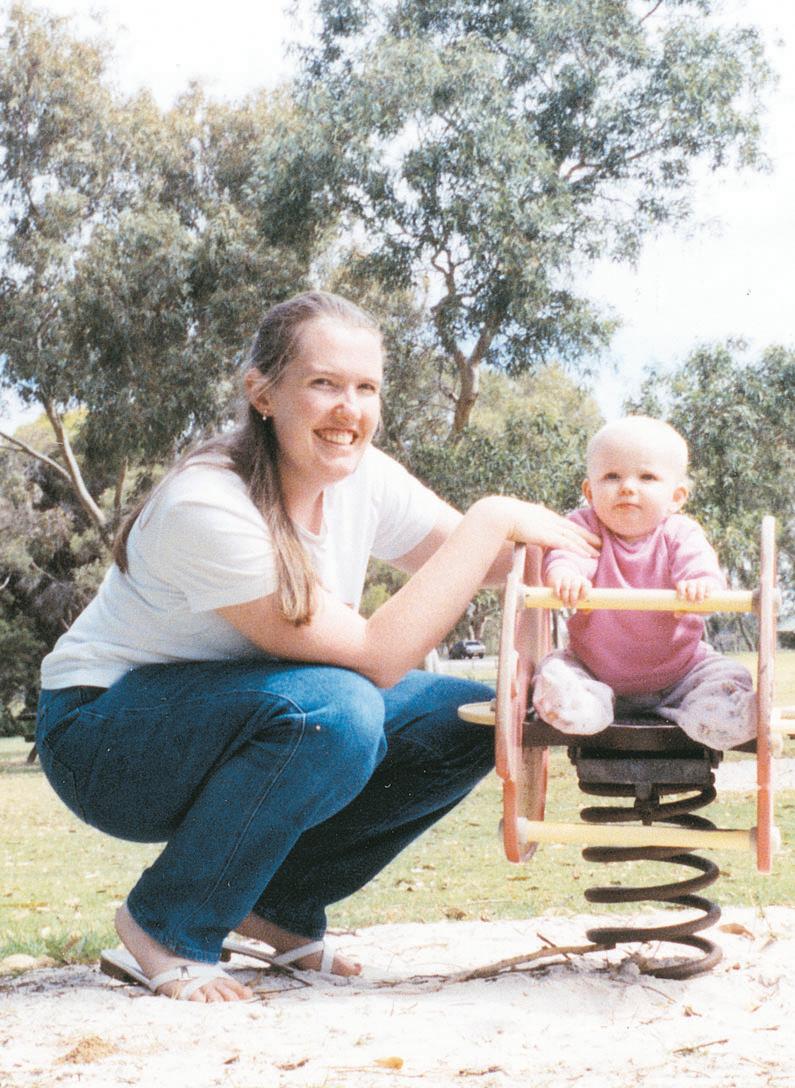
Our Lady of Lourdes School
Nollamara
A bouquet of prayers in thanksgiving for the life of Pope John Paul II was the centrepiece of the two whole school Masses held at Our Lady of Lourdes School in Nollamara.
Throughout the week of Monday 4 to Friday 8 April, individual classes visited the church to pray the Rosary. In addition, all prayers at the beginning and end of the school day were devoted to praying for the repose of the soul of our great spiritual leader, while the Australian flag flew at half-mast.
Mary MacKillop
Catholic Community Primary School, Ballajura
The memory of Pope John Paul II will remain with the Mary MacKillop Catholic Community Primary School community, each member of which received a commemorative prayer reflection card.
During the nine official days of mourning the community also prayed the Rosary each day, focussing on the five Mysteries of Light that the Pope added in 2002.
A parish community Mass, the flying of the Polish and Vatican flags and the establishment of reflective spaces around the school grounds also provided a means by which the community could pay its respects.
The Catholic Agricultural College community in Bindoon celebrated the life of John Paul II in a Liturgy held on Thursday 7 April.
Principal Bradley Hall said the Pontiff would be fondly remembered for the many things he accomplished during his long reign. In particular, he said John Paul II promoted a culture of life and stood firm in expressing and living a belief in the dignity of every human person, both born and unborn.
The Catholic Church unveiled a new television presence from March 1, with the launch of Australian Catholic Church Television on a new Foxtel Digital and Austar Digital community channel.
Sunday 1st May
8.00am Mass for You At Home
Mass for You At Home
Tuesday 3rd May 8.00pm Mass for You At Home
Priests 24/7
Wednesday 4th May
Mass for You At Home
Priests
Mass for You At Home
Thursday 5th May
Mass for You At Home
Priests
ADMINISTRATION
EUGENE SUARES administration@therecord.com.au inc. sales/subscriptions
EDITOR PETER ROSENGREN Letters to: cathrec@iinet.net.au
ADVERTISING
CHRIS MIZEN advertising@therecord.com.au
JOURNALISTS JAMIE O'BRIEN jamieob@therecord.com.au
BRONWEN CLUNE clune@therecord.com.au
Friday 6th May
2.00am Mass for You At Home
Priests 24/7
8.00am Mass for You At Home
Priests 24/7
2.00pm Mass for You At Home
Priests 24/7
Saturday 7th May
Mass for You At Home
Priests 24/7
Sunday 8th May
2.00am Mass for You At Home
Talking Families
3.30am Therese: An Australian Journey
8.00am Mass for You At Home
8.30am Talking Families
9.30am Therese: An Australian Journey
2.00pm Mass for You At Home
2.30pm Talking Families
3.30pm Therese: An Australian Journey
Tuesday 10th May
8.00pm Mass for You At Home 8.30pm Talking Families
9.30pm Therese: An Australian Journey
Wednesday 11th May
2.00am Mass for You At Home 2.30am Talking Families
3.30am Therese: An Australian Journey
8.00am Mass for You At Home 8.30am Talking Families
9.30am Therese: An Australian Journey
2.00pm Mass for You At Home
2.30pm Talking Families
3.30pm Therese: An Australian Journey
All times are WA time.

3.00pm Martyrs of East Timor
Saturday 21st May
Mass for You At Home
Talking Families
Therese: An Australian Journey
Saturday 14th May
Mass for You At Home
Talking Families
Therese: An Australian Journey
Sunday 15th May 2.00am Mass for You At Home
2.30am Add Religion and Stir 3.00am Martyrs of East Timor
8.00am Mass for You At Home
Add Religion and Stir
Martyrs of East Timor
2.00pm Mass for You At Home
Add Religion and Stir 3.00pm Martyrs of East Timor
Tuesday 17th May
8.00pm Mass for You At Home
8.30pm Add Religion and Stir 9.00pm Martyrs of East Timor
Wednesday 18th
2.00am Mass for You At Home
2.30am Add Religion and Stir
3.00am Martyrs of East Timor
8.00am Mass for You At Home
Add Religion and Stir
Martyrs of East Timor
2.00pm Mass for You At Home
Add Religion and Stir
Martyrs of East Timor
Thursday 19th May
8.00pm Mass for You At Home
8.30pm Add Religion and Stir
9.00pm Martyrs of East Timor
8.00pm Mass for You At Home 8.30pm Add Religion and Stir 9.00pm Martyrs of East Timor
Sunday 22nd May
2.00am Mass for You At Home 2.30am The Inner Path Part 1
8.00am Mass for You At Home 8.30am The Inner Path Part 1
2.00pm Mass for You At Home 2.30pm The Inner Path Part 1
Tuesday 24rd May 8.00pm Mass for You At Home 8.30pm The Inner Path Part 1
Wednesday 25th May 2.00am Mass for You At Home 2.30am The Inner Path Part 1
8.00am Mass for You At Home 8.30am The Inner Path Part 1
2.00pm Mass for You At Home 2.30pm The Inner Path Part 1
Thursday 26th May 8.00pm Mass for You At Home 8.30pm The Inner Path Part 1
Friday 27th May
2.00am Mass for You At Home 2.30am The Inner Path Part 1
8.00am Mass for You At Home 8.30am The Inner Path Part 1
2.00pm Mass for You At Home 2.30pm The Inner Path Part 1
Saturday 28th May 8.00pm Mass for You At Home 8.30pm The Inner Path Part 1
Aurora TV is a new community channel available on the basic package of Foxtel and Austar. It will go out on Channel 183 and provides for faith-based groups, not-for-prof it social service companies and non-Government organisations to have a voice on Australian TV. Catholic Church TV
MARK REIDY reidyrec@iinet.net.au
PRODUCTION MANAGER DEREK BOYLEN production@therecord.com.au
587 Newcastle St, Leederville Post: PO Box 75, Leederville, WA 6902
Tel: (08) 9227 7080
Fax: (08) 9227 7087
discovery,
St Cecilia’s Catholic Primary Port Hedland
In Port Hedland, a whole school Mass helped the community mourn the passing of the man they described as compassionate, just, dedicated and deeply spiritual.
Thursday 12th May
8.00pm Mass for You At Home 8.30pm Talking Families 9.30pm Therese: An Australian Journey
Friday
Friday 20th May
2.00am Mass for You At Home
2.30am Add Religion and Stir
3.00am Martyrs of East Timor
8.00am Mass for You At Home 8.30am Add Religion and Stir
9.00am Martyrs of East Timor
2.00pm Mass for You At Home 2.30pm Add Religion and Stir
During the Mass, Ashleigh O’Callaghan-Sear from Year 5 read an account of the life of Pope John Paul II, which she adapted from a Religious Education assignment she had recently completed. It read:
Karol Jozef Wojtyla became Pope on October 16th, 1978. He took the name John Paul II. The Pope was born in Wadowice, which is in Poland. He was born on 18 May 1920 and lived 84 years.
The Pope came to Australia and visited the following places: in 1986 he went to Perth, Alice Springs,
Melbourne, Sydney, Hobart, Brisbane and Canberra. On this visit while in Perth, the Pope went to the Catholic Education Centre, Leederville, and the Little Sisters of the Poor. In 1995 he once again visited Sydney.
For holidays the Pope often went to Castel Gandolfo, which is a small village in the hills outside Rome. When in church, the Pope wears a mitre, which is the liturgical headdress of all Bishops. Pope John Paul II will be remembered as a compassionate and just leader of our Church.

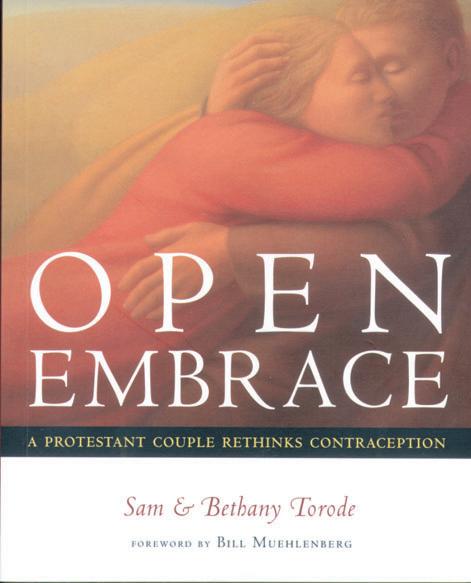
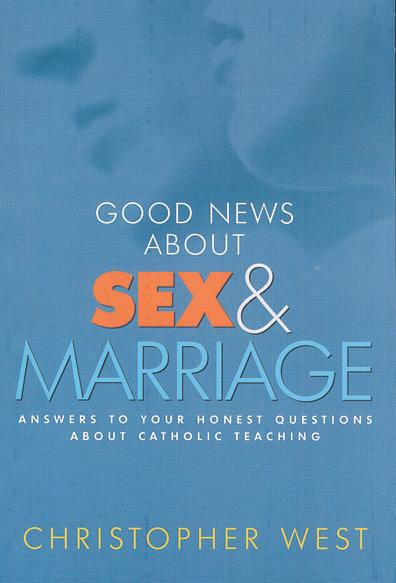

Available from The Record Contact Eugene Suares on 9227 7080 or by email: administration@therecord.com.au
the Holy Father
Mandurah Region
In the Mandurah region, the sense of community was highlighted with the students and staff from Assumption Catholic Primary School, Florida Catholic Primary School and Mandurah Catholic College coming together to celebrate Mass in Mandurah Catholic College’s Central Park.
School chaplains, Father Ian, Father Leon and Father Suranga concelebrated the Mass that had its theme taken from the words of the Carmelengo The Angels Welcome You, John Paul II.
The gathering of 1600 students and more than 150 staff joined together in prayer to ask God to bless John Paul II and welcome him into eternal life.
Music was a beautiful addition to the liturgy, with the Mandurah Catholic College choir singing a selection of
songs that concluded with a moving rendition of Into the West by Annie Lennox.
Each school participated in the liturgy with representatives from Years 6-12 paying tribute to the Holy Father through readings and prayers.
In his homily, Father Ian spoke fondly of a wonderful leader and inspirational example to the whole world. He reminded all those present that Pope John Paul II described the world as his parish and that everyone was a loved and treasured member of his parish family.
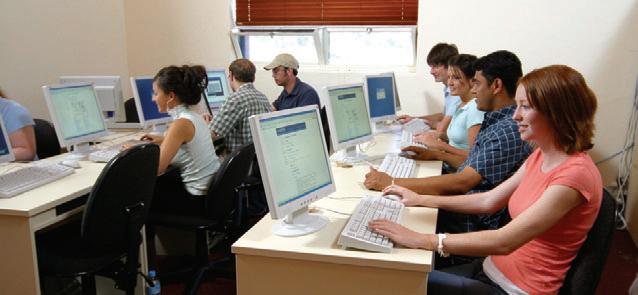
The School of Information and Communications Technology (School
practice the focus and mission objectives of The University of Notre Dame. Listening to student and industry needs is the underpinning rationale for what we do at the School of IT and the way that we do it.
The School was created to uniquely address the industry needs after the dot-com bust era and as such the learning environment at the School of IT is certainly pragmatic. Courses mimic industry training; we train our students rather than merely “teach” them. Almost every important segment of Information Technology that we deal with is put into practice through project work which requires thinking, analysis and the enrichment of communication skills between teams. We strive to make learning fun and challenging. We are committed to the delivery of a course that will graduate industry-ready graduates with many and diverse opportunities for employment.
The College of Science and Technology will hold a course information evening on Tuesday 28 June at 6pm.

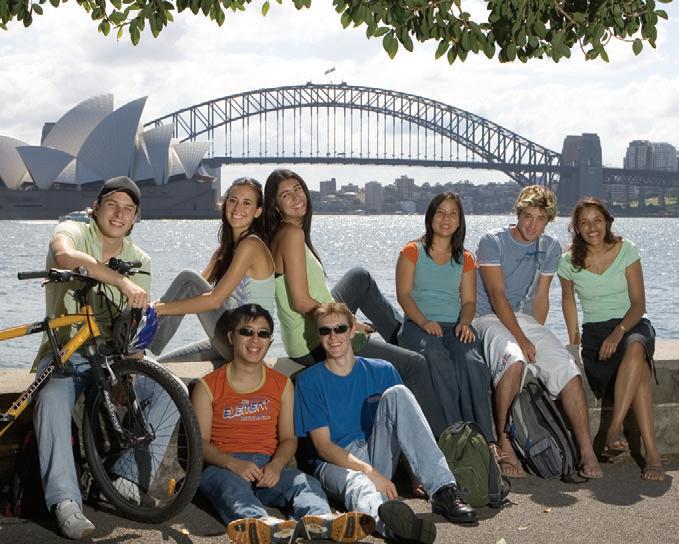
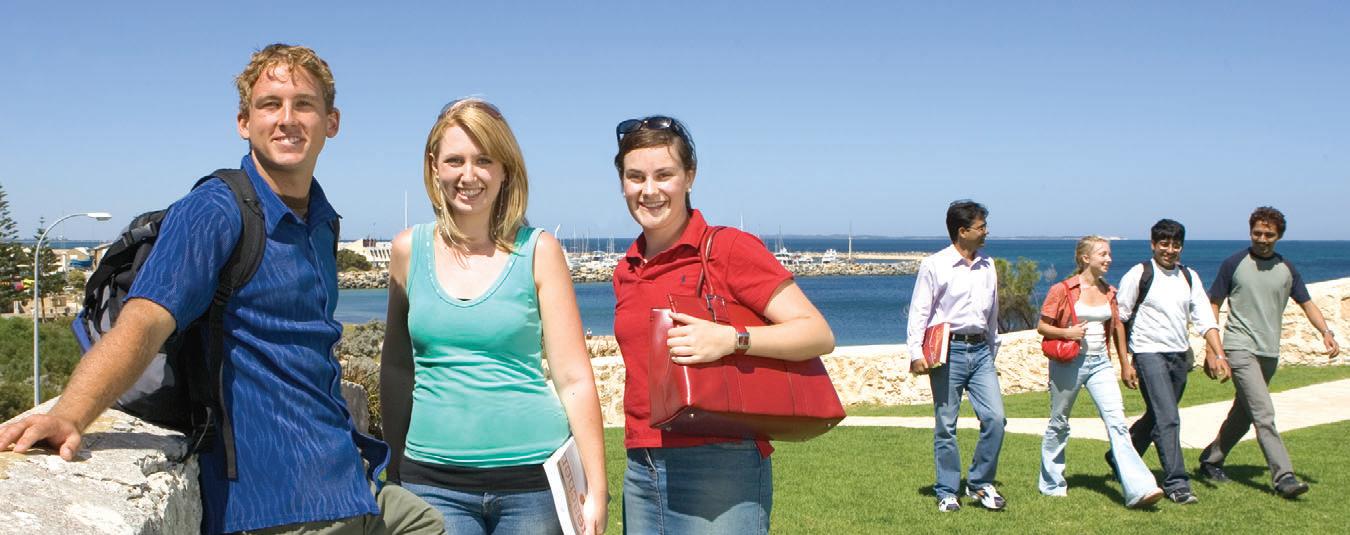
From the start of Semester One 2005, The University of Notre Dame Australia became more affordable with the introduction of the new FEE-HELP loan scheme. Australian students are now able to defer part or all of the cost of their degree from the Commonwealth government while studying, and pay the loan back once earning over $36,000. FEE-HELP is available to all Australian students, with no quotas set and allows students to borrow up to $50,000 which covers the cost most undergraduate degrees available at Notre Dame. Students wishing to loan their fees are issued with a FEEHELP number which is attached to their tax file number.
Once employed and earning $36,000 or above, extra tax is deducted from the salary and the loan is paid off over a number of years. While the loan is tax free, the government has attached a 20% loan fee which is set no matter how long it takes for the loan to be paid off. Repayments spread over a 10 year period equate to an interest rate of approx 1.8% - a very reasonable and affordable option. A 16% increase in local applications for Semester 1 this year demonstrate that our WA community welcomes the opportunity to study at a private university, a possibility that is no longer hampered by up front fees.
Course Information Evenings are an opportunity for prospective students to speak to the College staff and get a feel for the University, as well as providing the most up to date information about the courses being offered by Notre Dame. All sessions will be well signed from 19 Mouat Street, Fremantle.
•
17 May 6pm •
•
of
Science & Technology. . Tuesday 28 June 6pm
• College of Business, College of Law. . . . .
• Graduate School of Medicine . . . . . . . . . . . . . .
23 August 6pm
6 September 6pm
13 December 6pm
Students enrolled at Notre Dame's Fremantle and Broome Campuses may apply to transfer their studies for a semester or more to the Sydney Campus, subject to course and unit availability. The University encourages students wishing to undertake business internships and legal clerkships to consider the Sydney Campus as a base for part of their studies, maximising their industry experience in Australia's financial capital.
2006 will see the launch of Notre Dame's presence on the East Coast of Australia with the establishment of the Sydney Campus in Broadway. The University's Broadway site will offer courses in Arts, Commerce, Education, Law and Nursing (subject to accreditation by the relevant professional bodies) and another site in Darlinghurst will provide the base for the University's Sydney School of Medicine from 2007 (subject to accreditation).
The Broadway site is just a short walk from Central Station in the hub of Sydney's learning district, affording students all of the amenities and facilities that are required for a successful and enjoyable study experience.
Notre Dame's Darlinghurst Campus is situated on Oxford Street, a fifteen minute walk away from the CBD and just five minutes from the stylish Paddington shopping area. Bondi Beach is a mere 20 minutes way by public transport.